Industry & Regulation
May 9, 2025: Industry & Regulation
- CFPB Plans to Revisit Open Banking Rule Despite Staff Cuts
- Navigating FinCEN’s Actions on Huione Group: Strengthening Defenses Against Money Laundering
- Illegal Debanking Under Scrutiny: New Task Force Signals DOJ Enforcement Shift
- Banks Are Keeping Credit Card Rates High Even After the CFPB Rule They Blamed for High APRs Was Killed
CFPB Plans to Revisit Open Banking Rule Despite Staff Cuts
Evan Weinberger, Bloomberg Law
- Biden-era rule allows sharing of bank, credit card data
- Trump administration weighing vacature of rule in lawsuit
 The Trump administration is poised to reopen a Biden-era rule allowing customers to share their sensitive bank data with third-party fintechs and potentially vacate it, according to multiple sources.
The Trump administration is poised to reopen a Biden-era rule allowing customers to share their sensitive bank data with third-party fintechs and potentially vacate it, according to multiple sources.
The Consumer Financial Protection Bureau is leaning toward reworking its open banking rule, which allows customers to share their deposit account and credit card information with fintechs, such as online investment company Betterment or PayPal Holdings Inc.’s Venmo service, the sources told Bloomberg Law.
The CFPB will likely reopen the rule amid requests from banks about potential liability for data breaches and the ability to charge for access to data, according to a source familar with the matter who wasn’t authorized to speak publicly. Banks also want to be able to block companies that abuse their access to customer data from the open banking system, the source said.
It’s unclear whether the administration will look to add to the existing rule or eliminate it altogether, but supporters of the regulation are worried about any further delays to its implementation.
“Reopening this rulemaking means stalling financial innovation and prolonging uncertainty for both businesses and consumers in America,” said Steve Boms, President and CEO of FDATA North America, an open banking advocacy organization.
Acting CFPB Director Russell Vought fired most employees in the agency rulemaking unit that would rewrite the open banking rule, as part of an April reduction-in-force plan that eliminated 1,500 of the agency’s approximately 1,700-member workforce. Read more
- Related Reading: CFPB Announcement Regarding Enforcement Actions Related to Buy Now, Pay Later Loans
Navigating FinCEN’s Actions on Huione Group: Strengthening Defenses Against Money Laundering
Kelly A. Lenahan-Pfahlert, Ballard Spahr
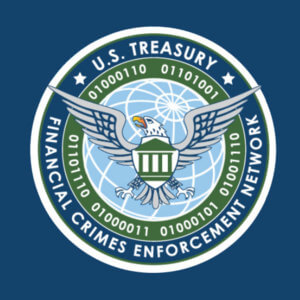 On May 1, 2025, the Financial Crimes Enforcement Network (FinCEN) released a Notice of Proposed Rulemaking (NPRM) regarding the Huione Group, a foreign financial institution located in Cambodia. This proposal, enacted under section 311 of the USA PATRIOT Act, suggests prohibiting U.S. financial institutions from forming or maintaining correspondent banking relationships with Huione Group. The NPRM identifies Huione Group as a significant money laundering concern, based on its purported role in facilitating unlawful financial activities.
On May 1, 2025, the Financial Crimes Enforcement Network (FinCEN) released a Notice of Proposed Rulemaking (NPRM) regarding the Huione Group, a foreign financial institution located in Cambodia. This proposal, enacted under section 311 of the USA PATRIOT Act, suggests prohibiting U.S. financial institutions from forming or maintaining correspondent banking relationships with Huione Group. The NPRM identifies Huione Group as a significant money laundering concern, based on its purported role in facilitating unlawful financial activities.
Following an investigation, FinCEN found that Huione Group was involved in laundering at least $4 billion in illegal proceeds between August 2021 and January 2025, with the funds distributed as follows:
- Approximately $37 million was linked to cyber thefts conducted by North Korea;
- Around $36 million originated from scams known as “pig butchering”;
- About $300 million was related to various other cyber fraud schemes.
Section 311 of the USA PATRIOT Act grants the Secretary of the Treasury the authority to identify foreign jurisdictions, financial institutions, or types of transactions that pose significant money laundering concerns. Upon such identification, the Secretary can impose special measures to mitigate risks to the U.S. financial system. These special measures can range from requiring enhanced record-keeping and reporting to prohibiting certain types of banking relationships. Read more
Illegal Debanking Under Scrutiny: New Task Force Signals DOJ Enforcement Shift
Vinson & Elkins LLP, JD SUpra
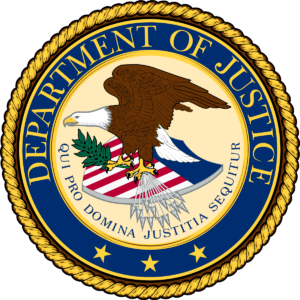 On April 28, 2025, the U.S. Attorney’s Office for the Eastern District of Virginia (“EDVA”) and the U.S. Department of Justice’s (“DOJ”) Civil Rights Division (“CRT”) announced the formation of the Eastern District of Virginia Equal Access to Banking Task Force.
On April 28, 2025, the U.S. Attorney’s Office for the Eastern District of Virginia (“EDVA”) and the U.S. Department of Justice’s (“DOJ”) Civil Rights Division (“CRT”) announced the formation of the Eastern District of Virginia Equal Access to Banking Task Force.
This new Task Force is dedicated to investigating claims of “debanking”—the unlawful denial, restriction, or termination of banking services based on a customer’s political views, religious beliefs, or other prohibited factors.
EDVA and CRT established the Task Force in response to growing concerns that banks and other financial institutions were improperly denying services to individuals or organizations for ideological reasons, rather than for legitimate business or compliance purposes. These concerns were highlighted in a January 23, 2025, Executive Order from President Trump, which aimed to “protect and promote fair and open access to banking services for all law-abiding individual citizens and private-sector entities alike.” Echoing this message, CRT Assistant Attorney General Harmeet K. Dhillon stated, “No customer should be refused credit or other financial services for discriminatory or unlawful reasons.
Scope and Focus of the Task Force
The Task Force will leverage EDVA, CRT, and Virginia Office of the Attorney General resources as well as coordinate with federal regulatory agencies as needed. Its work will include reviewing compliance with:
- The Equal Credit Opportunity Act (ECOA), which prohibits discrimination based on race, religion, national origin, sex, marital status, or age in any aspect of a credit transaction; Read more
Banks Are Keeping Credit Card Rates High Even After the CFPB Rule They Blamed for High APRs Was Killed
Hugh Son & Gabrielle Fonrouge, CNBC
 Key Points
Key Points
- Banks quickly raised interest rates to record levels and added new monthly fees on credit cards last year when a Consumer Financial Protection Bureau rule threatened a key revenue source for the industry.
- Now they’re far more reluctant to reverse those steps, even after bank trade groups succeeded in killing the CFPB rule in federal court last month.
- Synchrony and Bread Financial, two of the biggest players in the business of issuing branded credit cards for the likes of Amazon, Lowe’s and Wayfair, are keeping the higher rates in place, executives said in recent conference calls.
Last year, banks quickly raised interest rates to record levels and added new monthly fees on credit cards when a Consumer Financial Protection Bureau rule threatened a key revenue source for the industry.
Now, they’re far more reluctant to reverse those steps, even after bank trade groups succeeded in killing the CFPB rule in federal court last month. Synchrony and Bread Financial, two of the biggest players in the business of issuing branded credit cards for the likes of Amazon, Lowe’s and Wayfair , are keeping the higher rates in place, executives said in recent conference calls.
“We feel pretty comfortable that the rule has been vacated,” Synchrony CEO Brian Doubles said on April 22. “With that said, we don’t currently have plans to roll anything back in terms of the changes that we made.” His counterpart at Bread, CEO Ralph Andretta, echoed that sentiment, “At this point, we’re not intending to roll back those changes, and we’ve talked to the partners about that.” Read more
May 2, 2025: Industry & Regulation
- First 100 Days: Upcoming Regulatory Signals for Fraud and Financial Crime
- Financial Services Republicans Approve CFPB Cuts
- PODCAST: Private Civil Consumer Financial Services Litigation to Partially Fill CFPB Void – Part 1
- OPINION: States Should Take Charge of Gathering Beneficial Ownership Data
First 100 Days: Upcoming Regulatory Signals for Fraud and Financial Crime
KPGM
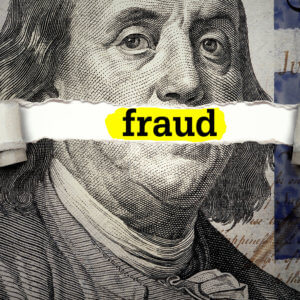 Actions impacting Fraud, BSA/AML/CFT, Bribery/Corruption, and Sanctions
Actions impacting Fraud, BSA/AML/CFT, Bribery/Corruption, and Sanctions
KPMG Regulatory Insights
- All-Time High Risks: Reported fraud at an all-time high and continued evolving risks (with use of AI, linkages to cyber risk, etc.) by potential threat actors ‘at scale’
- Shifting Investigations/Enforcement: Administration directives change enforcement focus (e.g., Foreign Corrupt Practices Act focus on cartels and transnational criminal organizations) but do not change underlying regulations/laws
- Regulatory Tailoring: Anticipate agencies to continue amending/tailoring regulations (e.g., narrowing Beneficial Ownership Information reporting), applying them to a specific subset of companies (e.g., foreign-owned, largest by size)
Under the new Administration, financial crimes enforcement is being recalibrated to target the priorities of the Administration and focus enforcement on “higher risk” areas while promoting economic growth and innovation. Signals for and indicators of regulatory change can be seen across:
- Fraud, including focusing on fraud against the government (e.g., fraud, waste, and abuse), focusing on consumer-related fraud, shifting enforcement of cryptocurrency/ digital assets activity, and redirecting White Collar fraud enforcement
- Financial Crimes Regulatory Framework (BSA/AML/CFT), including prioritizing areas of “higher risk,” narrowing application of the BOI reporting requirements, enhancing oversight of cross-border transactions in priority areas, and potentially finalizing amendments to certain AML/CFT program requirements (e.g., SARs filing requirements)
- Bribery and Corruption, including temporarily suspending new FCPA investigations and redirecting DOJ investigations priorities to foreign bribery that benefits cartels and transnational criminal organizations
- Sanctions, including expanding the application of sanctions to a broader group of entities (e.g., intermediaries), extending recordkeeping requirements, and reconsidering the role of certain task forces
Fraud: In its latest Data Book Report, the FTC highlights that fraud losses reported by consumers and companies in 2024 totaled more than $12.5 billion, a 25 percent increase over losses reported in 2023. Regulatory signals from the new Administration suggest a broad focus on fraud prevention, including actions to protect both the government and consumers. Read more
Financial Services Republicans Approve CFPB Cuts
Jasper Goodman, Politico
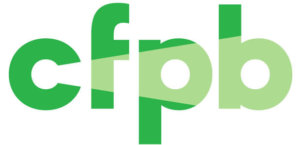 The committee’s measure would also dissolve the U.S.’ top audit watchdog and fold it into the SEC.
The committee’s measure would also dissolve the U.S.’ top audit watchdog and fold it into the SEC.
House Financial Services Republicans approved legislation Wednesday that would slash funding for the Consumer Financial Protection Bureau and dissolve the Public Company Accounting Oversight Board into the Securities and Exchange Commission as part of the party-line, GOP megabill that is central to President Donald Trump’s agenda. The panel voted along party lines, 30-22, to advance its portion of the GOP package, which is expected to include sweeping tax, energy and border policy changes. Financial Services Republicans say their section of the bill will produce more than the $1 billion in savings it was instructed to find.
The measure would slash the amount of funding the CFPB has access to by almost 60 percent. The bureau’s funding, which is derived from the Federal Reserve, would be capped at 5 percent of the central bank’s operating expenses under the proposal — down from the current limit of 12 percent. The legislation would also dissolve the U.S.’s top audit regulator, the Public Company Accounting Oversight Board, and fold it into the SEC.
Financial Services Chair French Hill (R-Ark.) said at the markup that his committee “will do its part to reduce the deficit and decrease direct spending so that Congress can enact pro-growth tax policies.” Democrats offered more than three dozen amendments that were shot down by Republicans throughout the nine-hour markup. They also put up procedural hurdles that slowed down the start of the meeting.
Democrats offered an array of amendments aimed at bolstering the CFPB, which has been a longtime GOP target. They also offered provisions aimed at boosting the supply of affordable housing, protecting the independence of the Federal Reserve and targeting the Trump family’s crypto businesses. Read more
PODCAST: Private Civil Consumer Financial Services Litigation to Partially Fill CFPB Void – Part 1
Ballard CFS Group, Consumer Finance Monitor
 The podcast we are releasing today is part 1 of a re-purposed webinar we produced on March 25 titled “The Impact of the Election on the CFPB – Part 4.”
The podcast we are releasing today is part 1 of a re-purposed webinar we produced on March 25 titled “The Impact of the Election on the CFPB – Part 4.”
As a result of the diminishing impact of the CFPB on enforcing the consumer financial services laws, we expect that void to be filled by state government enforcement agencies and private civil litigation, including class and mass actions. Our webinar will focus on private civil litigation. Our featured guest for this webinar was Ira Rheingold, Executive Director of the National Association of Consumer Advocates. He was joined on the panel by Thomas Burke, Dan McKenna, Jenny Perkins, Joseph Schuster, and Melanie Vartabedian, litigators in our firm’s Consumer Financial Services Group.
The podcast began with Ira observing that state enforcement agencies and plaintiffs’ class action lawyers will be taking a careful look at enforcement actions voluntarily dismissed by the CFPB to ascertain whether the complaints should be re-filed by them in federal or state court. We then proceeded to discuss the following areas where the panelists are predicting an increase in private civil litigation during 2025 and beyond:
- Increased FCRA litigation, especially in ID Theft (Jenny, Ira).
- The use of AI and corporate responsibility for ensuring that it does not create unfair or discriminatory practices (Ira).
- Increased retail bank litigation, including EFTA claims (Ira, Tom).
OPINION: States Should Take Charge of Gathering Beneficial Ownership Data
Kyle Mack, American Banker
 Among the many regulatory shifts under the new administration is the Financial Crimes Enforcement Network’s recent exemption of U.S. companies from reporting beneficial ownership information, or BOI.
Among the many regulatory shifts under the new administration is the Financial Crimes Enforcement Network’s recent exemption of U.S. companies from reporting beneficial ownership information, or BOI.
BOI refers to the individuals who ultimately own or control a company, directly or indirectly. Fincen argues that requiring U.S. companies to file this information is a “burdensome” regulation. Under the interim rule, they will no longer need to submit initial, updated or corrected BOI reports. However, foreign companies must still comply with these requirements.
Critics of BOI reporting raise concerns about privacy and data security. Some small-business owners fear government overreach or worry that disclosing ownership information could expose them to data breaches or misuse by unauthorized parties. It is important to note that this information isn’t public — it’s stored securely by Fincen and is only accessible to law enforcement and financial institutions conducting due diligence.
Another common concern is the compliance burden placed on small businesses, which may lack the time or resources to navigate new reporting obligations. While Fincen has provided guidance and support, the current design adds red tape and increases the risk of penalties for noncompliance. The result is a system that penalizes the very businesses it’s intended to protect. Read more
Apr. 25, 2025: Industry & Regulation
- OPINION: Time To Think the Unthinkable About Bank Regulation
- How Long Will Big U.S. Banks Continue to Lead the World?
- Credit Union Regulator Sheds Over 200 Employees in Buyout Offers
- Related reading: FDIC Aims to Reduce Workforce by 1,250
- Fed Regulation, Supervision Take Backseat in Independence Fight
OPINION: Time To Think the Unthinkable About Bank Regulation
Dan Davies, the Financial Times
 The bank supervisors of the world are, through speeches and “Dear CEO” letters, warning their charges of the need to prepare for elevated geopolitical risk.
The bank supervisors of the world are, through speeches and “Dear CEO” letters, warning their charges of the need to prepare for elevated geopolitical risk.
This might be mere irony or subconscious projection, but financial regulation has its own geopolitical issues — arguably more serious than anything faced by the banks themselves. Consider the so-called Basel III endgame, the last stage of the post-crisis regulatory reforms for banks.
This was agreed in 2017 and initially meant to be implemented from the start of 2022. The current state of play is that the EU has delayed some of the key points to 2026, the UK has delayed the whole thing to 2027 and the US does not even have a full proposal.
With the appointment of Michelle Bowman, a past critic of the endgame, to the post of Federal Reserve vice-chair for supervision, and Treasury secretary Scott Bessent’s most recent speech seemingly rejecting the whole principle of Basel standards, there have to be doubts as to whether the full Accord will ever be globally implemented. Whatever happens next in American politics, the bank lobbyists are very efficient — the endgame was already delayed and diluted under the Biden administration.
Uncertainty about global co-operation is beginning to spread. It is noticeable that the FinancialStability Board, which once led the way on climate risk, cyber risk and shadow banking, is going tospend 2025 working on a review of its own processes as its major deliverable. The Basel Committeeon Bank Supervision itself will be responding this year to the collapses of Silicon Valley Bank andCredit Suisse in 2023 by developing “tools” and perhaps some principles for “effective supervisoryjudgment”, rather than any new regulations. Read more
How Long Will Big U.S. Banks Continue to Lead the World?
Telis Demos, The Wall Street Journal
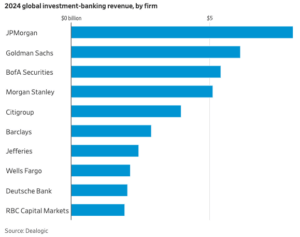 The trade war threatens the global dominance and growth of America’s megabanks
The trade war threatens the global dominance and growth of America’s megabanks
America is the China of banking.
While the U.S. may import more manufactured goods than it exports, it runs a large trade surplus in one notable business: financial services. The overall U.S. trade surplus for financial services in 2024 was about $130 billion, according to data from the U.S. Bureau of Economic Analysis.
Some of that reflects quirks of global money flows, like U.S. firms managing offshore funds. But it also includes things such as trading commissions, underwriting and mergers-and-acquisitions advice. Categories including those services collectively represented a nearly $10 billion surplus last year.
This plays out in practice in global league tables for advising on deals and fundraising. The rankings have tilted sharply toward American banks in the period since the 2008 financial crisis. Last year, U.S. banks occupied the top five spots for investment-banking revenue worldwide, and were seven of the top 10, according to Dealogic.
So when it comes to a global trade war, U.S. megabanks could become collateral damage. Many of Europe’s champions retrenched over the past 15 years, while Chinese and Asian powerhouses have limited heft beyond their region. A long-lasting trade war could begin to change the playing field. Read more
Credit Union Regulator Sheds Over 200 Employees in Buyout Offers
Evan Weinberger, Bloomberg Law
- NCUA sought 18% workforce cut through voluntary departures
- Agency roiled by Trump’s firing of Democratic board members
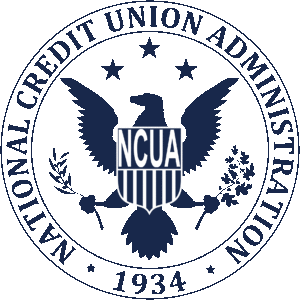 Around 220 employees at a federal regulator overseeing credit unions accepted voluntary resignation offers as the Trump administration continues its push to slash the federal workforce.
Around 220 employees at a federal regulator overseeing credit unions accepted voluntary resignation offers as the Trump administration continues its push to slash the federal workforce.
The employees had applied for the administration’s deferred resignation program or a voluntary separation incentive payment as of Wednesday, according to multiple people familiar with the matter who requested anonymity to avoid potential retaliation. The agency had been seeking 217 voluntary resignations, or 18% of its approximately 1,200-person workforce, according to documents obtained by Bloomberg Law. The NCUA didn’t immediately respond to a request for comment.
The cuts came after Elon Musk’s Department of Government Efficiency arrived at the regulator’s offices earlier this month. President Donald Trump last week fired two Democratic board members, former Chairman Todd Harper and Tanya Otsuka, adding to the state of uncertainty at the agency.
Other federal financial regulators, including the Federal Deposit Insurance Corp. and the Office of the Comptroller of the Currency, are also offering voluntary resignation programs to cull their workforces.
‘Mission Critical’
The NCUA board can deny early resignation applications from employees it deems to be “mission critical.” But with only NCUA Chairman Kyle Hauptman on the board following the firings of Harper and Otsuka, it’s unclear whether the agency’s leadership would have a quorum to make such decisions.
Employees whose voluntary resignation requests are denied can be paid at a time-and-a-half rate while they continue to work at the NCUA, a source familiar with the agency’s programs said. The Trump administration began offering deferred resignations soon after the president took office in January. The program allows participating federal workers to be put on administrative leave and paid through September. Read more
- Related reading: FDIC Aims to Reduce Workforce by 1,250
Fed Regulation, Supervision Take Backseat in Independence Fight
Kyle Campbell, American Banker
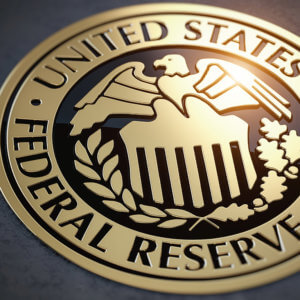 Federal Reserve officials are battling to maintain their political independence on monetary policy, but the same cannot be said for their regulatory and supervisory authorities.
Federal Reserve officials are battling to maintain their political independence on monetary policy, but the same cannot be said for their regulatory and supervisory authorities.
Instead, central bank officials have downplayed their ability to set their own banking oversight policies rather than boisterously defend it from the Trump administration’s efforts to bring it under more direct executive control.
Some policy analysts and observers see the Fed’s disparate treatment of its authorities as a pragmatic choice. Facing pressure on multiple fronts, Karen Petrou, managing partner at Federal Financial Analytics, said the Fed was wise to bolster its monetary independence — and fortunate to have had it explicitly exempted from the Trump administration’s overtures.
“The Fed is lucky to have maintained the Trump administration’s agreement to its monetary policy independence in the executive order the president issued on that point,” Petrou said, referring to a February action making independent agencies more accountable to the White House. “That was not a foregone conclusion.”
Petrou added that the legislative history and the academic literature that establish and justify the Fed’s monetary independence do not clearly apply to its regulatory and supervisory functions. Read more
Apr. 18, 2025: Industry & Regulation
- CFPB’s Vought Wants to Strip Away ‘Guidance’ En Masse
- Related Reading: CFPB Shifts Enforcement to States, Stops Nonbank Oversight
- Filene Research Files: Evaluating the Single Financial Services Regulator Question (2009)
- Federal Reserve Prepared to Intervene in Financial Markets if Liquidity Issues Arise, Says Boston Fed President
- Judge Scraps US Rule Capping Credit Card Late Fees at $8
CFPB’s Vought Wants to Strip Away ‘Guidance’ En Masse
Dan Ennis, Banking Dive
 The bureau’s acting director said the Biden administration used guidance as a substitute for formal regulation and gave eight CFPB offices two weeks to save any previous guidance they deem necessary.
The bureau’s acting director said the Biden administration used guidance as a substitute for formal regulation and gave eight CFPB offices two weeks to save any previous guidance they deem necessary.
Consumer Financial Protection Bureau Acting Director Russ Vought wants to take “guidance” down a peg.
In a memo Friday, Vought ordered the heads of eight offices within the bureau, including enforcement and supervision, to review by April 25 any guidance documents the agency has issued, with the aim of rooting out instances when guidance was used as a substitute for the more formal regulation process.
“The use of guidance to regulate is unlawful and deprives the public of fair notice of what conduct is prohibited,” Vought wrote in the memo seen by Fox Business and American Banker. “The Bureau will no longer engage in this practice. Effective immediately, Bureau components may not issue guidance documents that purport to create rights or obligations binding on persons or entities outside the Bureau.”
Vought laid out several parameters into which CFPB guidance should fit, including that guidance should state in a disclaimer that it is not legally binding. Guidance, he said, should refer to recommended practices, and the bureau should make clear that noncompliance limited to the guidance itself, will not trigger any enforcement action. Read more
-
Related Reading: CFPB Shifts Enforcement to States, Stops Nonbank Oversight
Filene Research Files: Evaluating the Single Financial Services Regulator Question (2009)
George Hofheimer, Filene
 The current U.S. financial services regulatory environment is going through changes. This report explores those changes and the implications for credit unions.
The current U.S. financial services regulatory environment is going through changes. This report explores those changes and the implications for credit unions.
Executive Summary
Today, it is commonplace to hear policymakers, industry participants and analysts speak about how our financial services regulatory system has failed us. Recent events have underscored this sentiment with unprecedented actions by the NCUA and the U.S. Treasury. To ensure you are informed about the issues and decisions ahead of us, this report explores the much anticipated reregulation of the financial services sector in the United States.
The fact that major changes to our current financial regulatory system are coming raises at least three questions for credit unions:
- What major changes are likely to occur?
- How will these changes affect credit unions?
- What should credit unions do to prepare for these changes or to become involved in the policymaking process that leads to these changes?
What is the research about?
This report explores the forthcoming reregulation of the financial services sector in the United States with a special focus on the impact a single financial services regulator may have on the credit union system. This specific topic is examined because a variety of political, economic, and social trends foreshadow its creation, and credit unions stand against the creation of such an entity. The analysis is based on an extensive and independent review of existing academic and policy research on this topic. Read more
Federal Reserve Prepared to Intervene in Financial Markets if Liquidity Issues Arise, Says Boston Fed President
Ayesha Aziz, Coin Market Cap/Yahoo Finance
 The U.S. Federal Reserve, represented by Boston Fed President Susan Collins, has stated it is prepared to intervene in financial markets if necessary, but only if liquidity issues arise or market conditions become disorderly.
The U.S. Federal Reserve, represented by Boston Fed President Susan Collins, has stated it is prepared to intervene in financial markets if necessary, but only if liquidity issues arise or market conditions become disorderly.
Despite concerns raised by recent market volatility, particularly following President Trump’s tariff announcements, Collins emphasized that current liquidity conditions remain stable. However, she made it clear that the central bank has tools at its disposal to address any market disruptions.
Collins noted that the Fed had previously acted quickly to stabilize markets, such as during the 2020 COVID-19 crisis, and would do so again if required. Although she acknowledged the broader market challenges, including rising yields in U.S. Treasuries, she underscored that there are no immediate liquidity concerns at this time. The Fed has maintained its position of monitoring the situation and has emphasized that its policy tools are flexible and varied, not limited to interest rate changes.
The yield on the 10-year U.S. Treasury has surged to 4.5%, marking a significant shift in the bond market. This movement, along with the uncertainty created by Trump’s tariff policy, has fueled concerns about potential instability in the $29 trillion Treasury market. As volatility continues, some market experts are speculating about a potential liquidity crunch, particularly in hedge funds that may be unwinding risky positions. Read more
Judge Scraps US Rule Capping Credit Card Late Fees at $8
Jonathan Stempel, Reuters
 A federal judge on Tuesday threw out a U.S. Consumer Financial Protection Bureau rule capping credit card late fees at $8, after the agency agreed with opponents that the rule adopted during President Joe Biden’s administration was illegal.
A federal judge on Tuesday threw out a U.S. Consumer Financial Protection Bureau rule capping credit card late fees at $8, after the agency agreed with opponents that the rule adopted during President Joe Biden’s administration was illegal.
U.S. District Judge Mark Pittman in Fort Worth, Texas granted a joint request by the CFPB and a coalition of six business and banking groups including the U.S. Chamber of Commerce and American Bankers Association to scrap the rule.
Pittman, an appointee of President Donald Trump, agreed with both sides that the rule violated the Credit Card Accountability and Disclosure Act of 2009 because it prohibited card issuers from charging fees “reasonable and proportional to violations.”
The rule capped late fees for issuers with more than 1 million open accounts unless they could prove higher fees were necessary to cover their costs. It had been part of Biden’s crackdown on “junk fees,” and was intended to reduce the typical late fee from about $32. The Trump administration is reversing many Biden-era rules and policies that it considers unfriendly to business.
In a March 2024 lawsuit against the rule, the business and banking groups accused the CFPB of overstepping its authority and ignoring Congress’ intent that fees be high enough to deter late payments and compensate card issuers for their costs. Read more
Apr. 11, 2025: Industry & Regulation
- Big Banks Quietly Prepare for Catastrophic Warming
- House Strikes Down $5 Overdraft Fee Limit, Sending Issue to Trump
- Banks Don’t Pay Tariffs, but Tariffs Will Cost Them
- Why Does Everyone Want to Be a Bank Now?
Big Banks Quietly Prepare for Catastrophic Warming
By Corbin Hiar & E&E News, Scientific American
 Morgan Stanley, JPMorgan, and an international banking group have quietly concluded that climate change will likely exceed the Paris Agreement’s 2 degree C goal and are examining how to maintain profits.
Morgan Stanley, JPMorgan, and an international banking group have quietly concluded that climate change will likely exceed the Paris Agreement’s 2 degree C goal and are examining how to maintain profits.
Top Wall Street institutions are preparing for a severe future of global warming that blows past the temperature limits agreed to by more than 190 nations a decade ago, industry documents show.
The big banks’ acknowledgment that the world is likely to fail at preventing warming of more than 2 degrees Celsius above preindustrial levels is spelled out in obscure reports for clients, investors and trade association members. Most were published after the reelection of President Donald Trump, who is seeking to repeal federal policies that support clean energy while turbocharging the production of oil, gas and coal — the main sources of global warming.
The recent reports — from Morgan Stanley, JPMorgan Chase and the Institute of International Finance — show that Wall Street has determined the temperature goal is effectively dead and describe how top financial institutions plan to continue operating profitably as temperatures and damages soar. “We now expect a 3°C world,” Morgan Stanley analysts wrote earlier this month, citing “recent setbacks to global decarbonization efforts.”
The stunning conclusion indicates that the bank believes the planet is hurtling toward a future in which severe droughts and harvest failures become widespread, sea-level rise is measured in feet rather than inches and tropical regions experience episodes of extreme heat and humidity for weeks at a time that would bring deadly risks to people who work outdoors.
The global Paris Agreement, from which the U.S. is withdrawing under Trump, aims to limit average temperature increases to well below 2 degrees Celsius. Scientists have warned that permanently exceeding 1.5 degrees — a threshold the world breached for the first time last year — could lead to increasingly severe climate impacts, such as the demise of coral reef ecosystems that hundreds of millions of people rely on for food and storm surge protection. Read more
House Strikes Down $5 Overdraft Fee Limit, Sending Issue to Trump
Stacy Cowley, New York Times
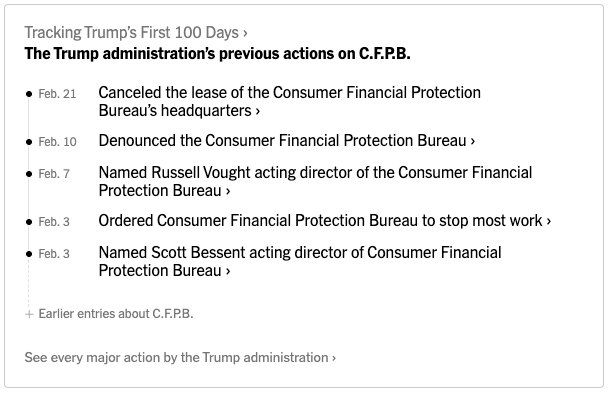 Lawmakers also struck down a rule giving the Consumer Financial Protection Bureau supervisory power over tech companies’ payments apps.
Lawmakers also struck down a rule giving the Consumer Financial Protection Bureau supervisory power over tech companies’ payments apps.
The House of Representatives on Wednesday approved resolutions striking down a $5 cap on most bank overdraft fees and overturning a rule that would have given a federal regulator greater oversight powers over payment apps run by large technology companies.
The overdraft fee limit was struck down 217 to 211, with Representative Ryan Mackenzie of Pennsylvania the lone Republican to join the Democrats’ dissent. The rule granting the government supervision over technology companies’ payment apps was overturned 219 to 211, with Republicans voting to eliminate the rule and Democrats united in opposition.
The Senate approved parallel resolutions last month, so they now head to President Trump for his signature. If Mr. Trump signs them, as is expected, the actions will vacate two rules that were made final at the tail end of the Biden administration by the Consumer Financial Protection Bureau, which monitors lenders and enforces consumer protection laws.
Lawmakers voted to eliminate the two rules through the Congressional Review Act, a 1996 law that permits lawmakers to reverse recently adopted regulations with a simple majority vote.
Banking trade groups celebrated the imminent demise of the overdraft fee limit, which had been scheduled to take effect in October. Those groups have argued that capping overdraft fees would have prompted many lenders to stop offering the service, which allows bank customers to take out cash even if there aren’t enough funds in their account. But banks charge fees for that convenience. Read more
Banks Don’t Pay Tariffs, but Tariffs Will Cost Them
Telis Demos, Wall Street Journal
Trump’s trade levies spell trouble for bank stocks though they aren’t in the direct line of fire
 Bankers don’t import or export sneakers or cars. But that doesn’t mean they are immune to tariffs. In fact, American lenders face a potential triple-whammy from the new trade regime announced by President Trump on Wednesday.
Bankers don’t import or export sneakers or cars. But that doesn’t mean they are immune to tariffs. In fact, American lenders face a potential triple-whammy from the new trade regime announced by President Trump on Wednesday.
The big threat is that a trade war leads to recession, or absent that, far slower economic growth. Bank revenues will tumble as customers, both consumers and companies, dial back on borrowing. They could also find it tougher to pay back their debts.
Meanwhile, a moribund economy could put downward pressure on long-term interest rates, even as inflation proves persistent and keeps short-term rates high. This would further squeeze bank profits. Amid all this uncertainty, dealmaking is likely to slow, and corporate investment could tumble, eating into Wall Street fees.
No wonder the new tariff announcements torpedoed shares of big U.S. lenders. On Thursday, the KBW Nasdaq Bank index had its worst one-day drop, nearly 10%, since March 2023, in the aftermath of the collapse of Silicon Valley Bank. Big banks have erased all of their gains since the November election, when they rallied on hopes for a rebound in dealmaking and business activity. Read more
Why Does Everyone Want to Be a Bank Now?
Georgia Hall and Paige Smith, Bloomberg
 Fintechs and other consumer companies are eager to take advantage of the changing regulatory mood.
Fintechs and other consumer companies are eager to take advantage of the changing regulatory mood.
In March, a financial-technology firm did something no US company had done in more than four years: It became a bank. SmartBiz Loans, a San Francisco-based lender specializing in small businesses, won the requisite regulatory approval — the first company since President Donald Trump’s initial term to get the coveted nod.
The move suggests the Trump administration is inclined to lower the barriers for non-bank companies eager to enter the world of banking. A change in approach would be welcome to burgeoning fintech businesses and other companies that covet a banking arm in order to have access to a stable, inexpensive source of financing.
Allowing all sorts of companies, from buy now, pay later firms to automakers to health insurance providers, to accept deposits and make loans could mean more options for consumers, and potentially lower banking fees and more competitive savings rates. But widening the pool of businesses offering banking services also would bring more neophytes into the industry, critics say, potentially making regulatory oversight more difficult and raising the risk of systemic failures that tighter financial rules were designed to guard against.
Why would a company want to be a bank? What risks do they face?
A bank charter can be alluring, especially for financial-services startups that need dependable access to cash, which consumer deposits could provide. Becoming a bank would free them from having to rely on a banking partner. It also would give them access to insurance on customers’ deposits and to the Federal Reserve payment system, which enables efficient financial transactions. Read more
Apr. 4, 2025: Industry & Regulation
- Judge Grants Injunction to Prevent Consumer Bureau from Being ‘Dissolved and Dismantled’
- Republicans Spell Out Demands for Bank Regulators
- Mergers Assisting Credit Unions with the Share-Gathering Challenge
- Marijuana Rescheduling Not on Agenda ‘At This Time,’ White House Official Says
Judge Grants Injunction to Prevent Consumer Bureau from Being ‘Dissolved and Dismantled’
Stacy Cowley, New York Times
 The bureau has been in turmoil as the Trump administration moved to fire hundreds of employees, ordered the rest to stop working and closed offices.
The bureau has been in turmoil as the Trump administration moved to fire hundreds of employees, ordered the rest to stop working and closed offices.
A federal judge issued a preliminary injunction Friday blocking the Trump administration from carrying out mass firings or otherwise dismantling the Consumer Financial Protection Bureau.
Calling the injunction “an extraordinary step,” Judge Amy Berman Jackson of the Federal District Court in Washington said she imposed it to prevent the agency from being “dissolved and dismantled.” The lawsuit’s plaintiffs — the bureau’s staff union and a collection of consumer advocates — are likely to succeed in their claim that the administration’s actions to gut the agency were illegal, the judge wrote in a 112-page decision.
“This ruling upholds the Constitution’s separation of powers and preserves the bureau’s vital work,” said Deepak Gupta, the lawyer representing the union. Representatives of the consumer bureau did not respond to a request for comment.
The bureau, created after the 2008 financial crisis, has been in turmoil since Feb. 7, when President Trump appointed Russell T. Vought, the director of the White House budget office, as the agency’s acting director. Mr. Vought quickly fired hundreds of employees, ordered the rest to stop all work, closed the bureau’s offices and canceled contracts with vendors for staffing and services that are essential to the agency’s operations. Read more
Republicans Spell Out Demands for Bank Regulators
Claire Williams, American Banker
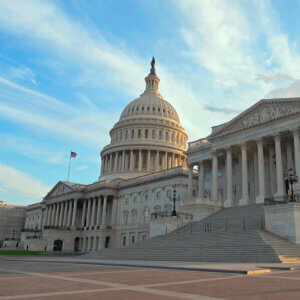 Leading Republicans on the House Financial Services Committee released a flurry of letters to key bank regulators asking for them to rescind or alter rulemaking from the Biden administration.
Leading Republicans on the House Financial Services Committee released a flurry of letters to key bank regulators asking for them to rescind or alter rulemaking from the Biden administration.
Lawmakers, led by Rep. French Hill, the chairman of the House Financial Services Committee, wrote to the heads of several financial regulators — including the Treasury Department, Federal Deposit Insurance Corp., Federal Reserve, Office of the Comptroller of the Currency and Consumer Financial Protection Bureau — with a laundry list of bank regulations they would like to see rolled back or done away with under the Trump administration.
For all the prudential regulators, the lawmakers asked that they roll back the revamped Community Reinvestment Act, a 1977 anti-redlining law that bank regulators updated the implementation rules for in October 2023. The Fed, the FDIC and the OCC already said that they plan to rescind the CRA rule and revert to previous standards.
For the Fed, the lawmakers also asked that the central bank “go back to the drawing board” on Basel III endgame standards, and delay a long-term debt rule until Basel III requirements are figured out. The Republicans also said that the Fed and other regulators should rescind a 2023 guidance on managing third-party relationships that lays out the framework for how banks and fintechs interact. Read more
Mergers Assisting Credit Unions with the Share-Gathering Challenge
Ken McCarthy, Tyfone/CUInsight
 Total shares and deposits for U.S. credit unions grew by 4.2% over the past year, but those numbers might be a bit deceiving.
Total shares and deposits for U.S. credit unions grew by 4.2% over the past year, but those numbers might be a bit deceiving.
That’s because regular shares declined by $13.6 billion, or 2.4%, to $555.5 billion at the end of the fourth quarter of 2024, according to recently released data from the National Credit Union Administration. The overall number was buoyed by “other deposits,” which increased by $82.7 billion, or 8.8%. That surge was led by share certificate accounts, which grew by 16% during the past year to $561.2 billion, the NCUA said.
So gathering traditional shares remains a challenge for most credit unions. But some institutions have found at least a short-term solution: mergers.
“There are certain credit unions that do organic growth well, albeit slowly,” said Matt Selke, president and CEO of Georgia Heritage Federal Credit Union in Savannah. “But most of the big deposit growth comes from mergers or buying banks.”
The $150 million-asset Georgia Heritage is a good example. Early in 2024, Georgia Heritage closed its merger with G.P.A. Credit Union and subsequently ended last year with $131.1 million in shares compared to $114.3 million at the end of 2023, a 15% year-over-year increase.
Selke told Tyfone Georgia Heritage is expecting only tepid deposit growth in 2025. “But the possible trade war is freaking some folks out, and people are moving money from the stock market to a place of safety, which is their credit union until they see what’s going to happen,” he said. Read more
Marijuana Rescheduling Not on Agenda ‘At This Time,’ White House Official Says
MJBizDaily Staff
 The Trump administration won’t reclassify the status of marijuana under federal law anytime soon.
The Trump administration won’t reclassify the status of marijuana under federal law anytime soon.
That’s according to an unidentified White House official who told CNN this week that “no action is being considered at this time” on rescheduling. The statement comes despite President Donald Trump having expressed his support for marijuana reform while on the campaign trail.
The White House official’s comment came as a pro-legalization political action committee, American Rights and Reform PAC, announced a $1 million ad campaign.
The PAC said it will pay to broadcast 30-second commercials in support of marijuana reform on cable and streaming services in markets where Trump, an avid television consumer, is apt to see them – in Washington, D.C., and near his Mar-a-Lago home in Florida.
The PAC, formerly called Legalize America, is bankrolled by major multistate operators. According to campaign finance records, the PAC had roughly $390,000 on hand at the end of 2024, the most recent data available.
Direct involvement from Trump, no matter the impetus, is considered to be the best hope for federal marijuana reform such as rescheduling. That process was put on hold in January by the U.S. Drug Enforcement Administration’s chief administrative law judge. Read more
Mar. 28, 2025: Industry & Regulation
- US Treasury Department Prepares to Streamline Banking Regulators
- U.S. House of Representatives Committee on Financial Services Hearing: A New Era for the CFPB: Balancing Power and Reprioritizing Consumer Protections
- Focus: Bank Bosses Call for Softer Rules, Trump-Nominated Regulators Listen
- Credit Unions’ Reliance on Overdraft Fees Comes into Focus
US Treasury Department Prepares to Streamline Banking Regulators
Ateev Bhandari and Niket Nishant, Reuters
 The U.S. Treasury department is preparing recommendations for streamlining some banking regulators, Semafor reported on Monday, as it seeks a stronger role in the oversight of the country’s biggest lenders.
The U.S. Treasury department is preparing recommendations for streamlining some banking regulators, Semafor reported on Monday, as it seeks a stronger role in the oversight of the country’s biggest lenders.
The recommendations could impact the Office of the Comptroller of the Currency and Federal Deposit Insurance Corporation, the report said, citing three people familiar with the process. The FDIC and OCC declined to comment. The Treasury department did not immediately respond to a Reuters request for comment.
The Trump administration has embraced an expansive view of the presidential power. Last month, an executive order gave the White House greater control over independent agencies. Treasury Secretary Scott Bessent’s push for greater control over banking regulators aligns with this strategy, according to the Semafor report.
If approved, the recommendations could be the latest in a series of assertive measures by the Trump administration, which has moved to defund federal programs and freeze billions of dollars in spending approved by Congress.
Officials have already taken steps to reshape the financial industry and loosen regulation. The Consumer Financial Protection Bureau — a top consumer watchdog — has largely been dormant after it was ordered to halt all activity. The OCC, the regulator charged with monitoring large national banks, told staff last month it was firing 76 probationary employees.
Last week, President Donald Trump fired two Democratic commissioners at the U.S. Federal Trade Commission, which has a bipartisan structure where no more than three of the five commissioners can come from the same party.
U.S. House of Representatives Committee on Financial Services Hearing: A New Era for the CFPB: Balancing Power and Reprioritizing Consumer Protections
 The Subcommittee on Financial Institutions, led by Chairman Andy Barr (KY-06), held a hearing entitled, “A New Era for the CFPB: Balancing Power and Reprioritizing Consumer Protections.” The hearing examined the current regulatory and legal landscape for federal consumer financial protection, as well as the structure and funding of the Consumer Financial Protection Bureau (CFPB).
The Subcommittee on Financial Institutions, led by Chairman Andy Barr (KY-06), held a hearing entitled, “A New Era for the CFPB: Balancing Power and Reprioritizing Consumer Protections.” The hearing examined the current regulatory and legal landscape for federal consumer financial protection, as well as the structure and funding of the Consumer Financial Protection Bureau (CFPB).
Topics
- On the CFPB’s deviation from its core mission
- On the benefits of improving the CFPB
- On reforming the CFPB
- On the harm of overregulation at the CFPB
Witnesses
- Ana Fonseca, President and CEO, Logix Federal Credit Union stated, “While the concept of an independent entity to protect consumers from unregulated bad actors is a laudable one, the single director structure of the CFPB has created great regulatory uncertainty in the marketplace. The last four years have seen the CFPB too often take an approach that could be called “regulation by enforcement” where press releases on enforcement actions seem to create new standards that entities must comply with to promote a political agenda, leading to greater uncertainty. Consumer protection in financial services is important, and we applaud the Subcommittee for beginning this difficult discussion on how to reform and improve the CFPB moving forward to prioritize consumer protection.”
- Rebecca E. Keuhn, Partner, Hudson Cook, LLP, added, “The contours of the Bureau’s abusiveness authority—its limits and how it differs from unfairness and deception—remain unclear to this day. The Bureau has primarily used its enforcement authority to declare what it believes is abusive. The enforcement cases to date have not shown how abusiveness is different from unfairness or deception, and they have been inconsistent in applying different abusiveness prongs to similar facts and circumstances. The result is that enforcement can appear arbitrary and results-oriented or—as some have put it—as “regulation by enforcement.”
- David Pommerehn, General Counsel, Head of Regulatory Affairs, Consumer Bankers Association added, “Under the prior administration, the Bureau frequently sought to score political points by penalizing businesses in the press, rather than prioritizing true consumer protection. While unfortunate, this outcome is no surprise given that the CFPB is statutorily structured to be immune from oversight from elected legislators. Additionally, unlike most other financial regulators, the CFPB is led by a single Director with unilateral authority, which allows for significant political and policy swings when the Bureau’s leadership changes. …CBA is eager to work with Congress and the administration to establish long-term stability and credibility at the CFPB for the benefit of consumers.”
- Bryan Schneider, Partner, Manatt, Phelps & Phillips, LLP, added, “While the Supreme Court has recently held that the CFPB’s current funding structure is constitutional, that by no means suggests that it is optimal or even salutary. Indeed, the CFPB’s budget is presently subject to no congressional oversight. As a result, it goes without saying, the CFPB’s priorities are in no meaningful way subject to the priorities of the American people represented in Congress. Considerable ink has been spilled on just how unusual the CFPB’s funding mechanism is within the Federal government, but, speaking as a former State regulator, it is to my eye inconsistent with fundamental principles of separation of powers and ordered liberty. … Having your work examined and evaluated by appropriations committees is not something generally welcomed, but it is assuredly the only reliable way for the legislature to ensure that a regulatory agency is tying its activities to the authority granted to it.”
Focus: Bank Bosses Call for Softer Rules, Trump-Nominated Regulators Listen
Lananh Nguyen, Pete Schroeder and Tatiana Bautzer, Reuters
U.S. banking giants are pushing for a swath of lighter regulations from President Donald Trump’s administration and say they are heartened by signals that regulators are listening.
Summary:
- Big banks pushing for relief on rules, oversight
- Administration officials sound sympathetic to lighter touch
- Bank supervision, reporting requirements, stress tests in focus
 Bank bosses want to cut reporting requirements on some transactions, limit regulators’ enforcement powers, speed up deal approvals and overhaul capital rules, four industry executives told Reuters. Those asks would include raising the bar on an anti-money-laundering rule requiring reporting of $10,000 cash transactions and limiting the use of confidential regulatory warnings, known as Matters Requiring Attention, two of those sources said. Another major change could be watering down annual stress tests, one of those sources said.
Bank bosses want to cut reporting requirements on some transactions, limit regulators’ enforcement powers, speed up deal approvals and overhaul capital rules, four industry executives told Reuters. Those asks would include raising the bar on an anti-money-laundering rule requiring reporting of $10,000 cash transactions and limiting the use of confidential regulatory warnings, known as Matters Requiring Attention, two of those sources said. Another major change could be watering down annual stress tests, one of those sources said.
The industry has gotten encouraging signs from public statements from the administration, even as bankers wait for head regulators to be installed. “There has been receptivity to our concerns,” said Kevin Fromer, head of the Financial Services Forum, which represents the largest global banks and has been pushing for lighter capital and supervisory controls. “We’re at the early stages of that conversation.”
Public statements by regulators have indicated a change of focus. Treasury Secretary Scott Bessent told the Economic Club of New York this month that the financial regulatory agenda needed “a fundamental refocusing of supervisors’ priorities,” while Travis Hill, acting FDIC head, said at a bankers conference in Washington that regulators need to be “more focused on the real fundamental financial risks and less on the administration around that.” Read more
Credit Unions’ Reliance on Overdraft Fees Comes into Focus
Nathan Place, American Banker
 Americans are paying far more in overdraft-related fees than previously known, with credit unions collecting almost all of the uncounted revenue, according to a new study.
Americans are paying far more in overdraft-related fees than previously known, with credit unions collecting almost all of the uncounted revenue, according to a new study.
U.S. households spent a total of $11.8 billion on overdraft and non-sufficient fund fees in 2023, according to the non-profit Financial Health Network — not $7.9 billion, as it originally estimated. Most of this 49% increase came from credit unions, according to the researchers.
Before last year, only banks with more than $1 billion of assets were required to publicly report their overdraft and NSF fee income; no such disclosure requirement existed for credit unions of any size.
Then, starting at the beginning of 2024, the National Credit Union Administration began holding credit unions to the same standard as banks. Those credit unions with more than $1 billion of assets had to start reporting the fees to the public.
“Really, what’s at play is a key new data source,” said Hannah Gdalman, one of the study’s authors. “So now we kind of have that equal vision into credit unions as we’ve had for banks, and have been able to revise our estimates accordingly.”
This new data shows that credit unions took in far more revenue from bounced-payment penalties than experts had previously known. Originally, the Financial Health Network clocked credit unions’ fee revenue for 2023 at $1.4 billion; now its estimate is $5.3 billion. Read more
Mar. 21, 2025: Industry & Regulation
- As Trump Administration Rolls Back CFPB’s Work, New York Wants to Fill the Void
- ICYMI: FDIC Withdraws Merger Policy, Brokered Deposits Proposal
- What is CFPB Section 1033?
- Banks Are Pushing Back Against Stablecoin Legislation
As Trump Administration Rolls Back CFPB’s Work, New York Wants to Fill the Void
John Culhane Jr., Mike Kilgarriff, Adrian King Jr., and Marjorie Peerce; Ballard Spahr LLP/ JD Supra
 As the Trump Administration attempts to drastically cut CFPB funding and staffing, New York regulators and legislators are attempting to fill what could be a void in consumer protection efforts.
As the Trump Administration attempts to drastically cut CFPB funding and staffing, New York regulators and legislators are attempting to fill what could be a void in consumer protection efforts.
“We’re hiring,” Adrienne A. Harris, the state’s Superintendent of the Department of Financial Services, said during a presentation on March 12 at the Brookings Institution. She delivered a message to financial services professionals, “We welcome you.” Harris went on to tout her department’s work, saying that the NYDFS has taken 111 enforcement actions since she became superintendent in January, 2022.
A day later, the Department of Financial Services announced that it was hiring former CFPB Deputy Enforcement Director Gabriel O’Malley to head the agency’s Consumer Protection and Financial Enforcement Division. O’Malley left the CFPB in February, after more than a decade at the bureau.
The NYDFS has also been active on the regulatory front, having proposed its own overdraft rule governing state-chartered financial institutions earlier this year.
That rule, as outlined by Harris and the NYDFS would, among other things, prohibit:
- Overdraft and NSF fees on overdrafts of less than $20.
- Overdraft fees that exceed the overdrawn amount.
- NSF fees than exceed the amount of the NSF transaction
- More than three overdraft or non-sufficient funds (NSF) fees per consumer account per day. Read more
ICYMI: FDIC Withdraws Merger Policy, Brokered Deposits Proposal
Caitlin Mullen, Banking Dive
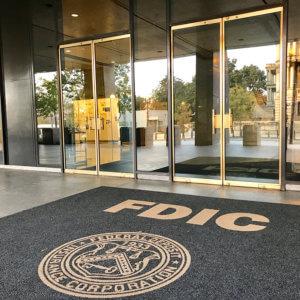 The regulator’s board voted Monday to scrap four Biden-era proposed rules and a policy that applied greater scrutiny to bank mergers.
The regulator’s board voted Monday to scrap four Biden-era proposed rules and a policy that applied greater scrutiny to bank mergers.
Dive Brief:
- The Federal Deposit Insurance Corp. board on Monday approved a proposal to rescind the bank merger policy adopted last year, the agency said in a Monday release.
- The FDIC will reinstate, on an interim basis, its previous merger policy statement while conducting “a broader re-evaluation” of its bank merger review process, the release said. Comments on the proposal will be accepted for 30 days after publication in the Federal Register.
- The board also withdrew a brokered deposits proposal, which “would have significantly disrupted many aspects of the deposit landscape,” along with proposals related to corporate governance, the Change in Bank Control Act and incentive-based compensation arrangements, according to a separate Monday release.
Dive Insight:
The FDIC board’s actions Monday to ditch Biden-era policies are further evidence the banking agency is shifting gears following President Donald Trump’s return to the White House. Bankers and analysts have expected certain policies to be walked back as part of a lighter approach to regulation during Trump’s second term. Read more
What is CFPB Section 1033?
Finextra
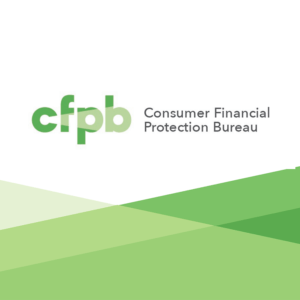 The Consumer Financial Protection Bureau, or CFPB, is an independent agency of the United States government. On 22 October 2024, the CFPB issued a final rule to implement Section 1033 of the Dodd-Frank Act, seeking to govern how consumers access and share their financial data – and how that data is protected.
The Consumer Financial Protection Bureau, or CFPB, is an independent agency of the United States government. On 22 October 2024, the CFPB issued a final rule to implement Section 1033 of the Dodd-Frank Act, seeking to govern how consumers access and share their financial data – and how that data is protected.
In essence, the regulation marked an attempt to develop Open Banking infrastructure in the US – of which data standardisation, greater consumer safety, data use and retention controls, and decentralisation, are the desired results.
In its October 2023 request for public comment, the CFPB advised that Section 1033 would “provide basic standards for data access; and promote fair, open, and inclusive industry standards.” At the time of writing, however, uncertainty over this regulation reigns. The CFPB, for its part, has been put on hold, and is under threat of being dismantled altogether by the current US administration.
Open Banking: For US consumers
The United States’ financial services landscape is more complex than ever before. Both the variety and volume of players have never been so great. A by-product of this multi-faceted marketplace is technological fragmentation, with end-users experiencing considerable fiction when trying to access third-party services, or switch from one bank to another. Read more
Banks Are Pushing Back Against Stablecoin Legislation
Claire Williams, American Banker
 Bankers are beginning to raise concerns about Republicans’ push to finalize stablecoin legislation this Congress, a marked shift from the industry’s approach to similar legislation last year.
Bankers are beginning to raise concerns about Republicans’ push to finalize stablecoin legislation this Congress, a marked shift from the industry’s approach to similar legislation last year.
The Senate Banking Committee will later today mark up the most robust and serious stablecoin bill that’s come out of Congress yet — the GENIUS Act, primarily sponsored by Sens. Bill Hagerty, R-Tenn., and Senate Banking Committee Chairman Tim Scott, R-S.C.
With the Trump administration’s push to pass crypto-friendly policy, Republican lawmakers are under pressure to quickly pass some kind of stablecoin bill.
But while the bill has some degree of bipartisan support — with freshman Maryland Sen. Angela Alsobrooks backing the bill on the Democratic side — it’s still expected to face tough pushback from Senate Banking Committee ranking member Sen. Elizabeth Warren, D-Mass. The bill will need 60 votes in the Senate to advance, meaning seven Democrats will have to join the Republican majority. Warren’s opposition makes that difficult, as she wields outsized influence in her caucus on banking issues.
According to a briefing document from Warren’s office on the bill obtained by American Banker, Warren is expected to criticize the mingling of banking and commerce under the bill, particularly by big tech companies. Read more
Mar. 14, 2025: Industry & Regulation
- Judge in CFPB Case ‘Leaning’ Toward Injunction
- Over 1,600 Financial Firms Tapped Fed’s Emergency Lending Tool
- House Financial Services Committee Approves Resolution on Overdraft Fees
- FCC’s New Consent Revocation Rule Set to Take Effect in April 2025
Judge in CFPB Case ‘Leaning’ Toward Injunction
Dan Ennis, Banking Dive
 Efforts to gut the bureau may still be going forward. A defense attorney, meanwhile, tried to highlight the differences between DOGE’s actions and those of the CFPB’s new leadership.
Efforts to gut the bureau may still be going forward. A defense attorney, meanwhile, tried to highlight the differences between DOGE’s actions and those of the CFPB’s new leadership.
The federal judge in the National Treasury Employees Union’s case against Trump-era management of the Consumer Financial Protection Bureau said Tuesday she’s “leaning” toward issuing a preliminary injunction to keep at bay a plan to put the agency in “wind down mode.”
“I want to preserve an agency that could be revived, if necessary,” Judge Amy Berman Jackson of the U.S. District Court for the District of Columbia said Tuesday, according to American Banker. “I don’t think we can have nothing.”
The comment capped two days of testimony, including from the CFPB chief operating officer credited with calling the Trump administration’s design for the agency “wind-down mode.” In testimony, Adam Martinez, the bureau’s COO, likened the Department of Government Efficiency’s Feb. 6 arrival at the CFPB to a “hostile takeover.”
“The rapidness of the way that it was occurring was overwhelming,” he said. “I now realize how much damage can be done within a couple of days to an organization.” Read more
Over 1,600 Financial Firms Tapped Fed’s Emergency Lending Tool
Carter Johnson & Alexandra Harris, Bloomberg
 More than 1,600 financial firms and their subsidiaries tapped the Federal Reserve’s emergency lending program created to support the industry during the regional banking turmoil two years ago.
More than 1,600 financial firms and their subsidiaries tapped the Federal Reserve’s emergency lending program created to support the industry during the regional banking turmoil two years ago.
Beal Bank USA and First Republic Bank took out the biggest loans through the Bank Term Funding Program, which was established in March 2023 to bolster liquidity within the financial system after the collapse of Silicon Valley Bank. At their peak, they each borrowed loans in excess of $8 billion from the Fed, according to data released from the Fed on Wednesday.
Ranging from the largest global systemically important firms to community institutions, banks borrowed $168 billion through the BTFP during a peak, one-week period last year.
The BTFP was created under the Fed’s emergency authority given the “unusual and exigent circumstances” of early 2023, when Silicon Valley Bank became the biggest US lender to fail in more than a decade after a massive cash exodus. Trouble in the regional banking industry, at the time, had stirred concern among investors that a bigger crisis was brewing.
The program offered a solution to one of the financial system’s main challenges of 2023: giving banks and credit unions the ability to borrow funds for as long as a year. Read more
House Financial Services Committee Approves Resolution on Overdraft Fees
Dave Kovaleski, Financial Regulation News
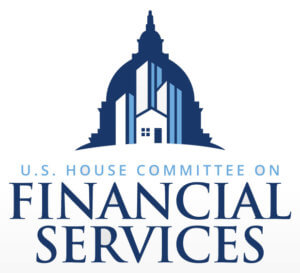 The House Financial Services Committee reported 11 bills and resolutions to Congress this week after the committee held its first full committee markup session of this Congress.
The House Financial Services Committee reported 11 bills and resolutions to Congress this week after the committee held its first full committee markup session of this Congress.
Among them was H.J. Res. 59, which disapproves of the Consumer Financial Protection Bureau’s (CFPB’s) rule on overdraft fees for financial institutions. The resolution was sponsored by Rep. French Hill (R-AR), chairman of the House Financial Services Committee. It passed by a vote of 30 to 19.
“To show our commitment to defending the U.S. and its allies against China, this markup included several bipartisan measures championed by members of this Committee. These bills underscore the scope of the Committee’s jurisdiction and the unique ways our members contribute to our national security,” Hill said. “We also considered a CRA to nullify the CFPB’s harmful overdraft rule. By forcing banks to cut their fees, or to treat overdrafts as “loans”, banks will limit the service, especially to low-income and low-credit customers. That would drive customers in a pinch towards alternative products – much more costly non-bank products.”
The committee cited a recent study from the Federal Reserve Bank of New York on fee caps. The report said that while fee caps reduce overdraft fees, they also trigger adjustments by banks that limit the financial inclusion of low-income households. The report added that policies that promote increased competition and transparency may be more effective in keeping overdraft fees in line.
The resolution was supported by several financial industry groups, including the American Bankers Association (ABA) and 52 state bankers’ associations. Read more
FCC’s New Consent Revocation Rule Set to Take Effect in April 2025
Alexis M. Buese & Stephen Parsley, Bradley
 The Federal Communications Commission (FCC) has a new rule under the TCPA for revocation of consent for robocalls and text messages set to go into effect on April 11, 2025.
The Federal Communications Commission (FCC) has a new rule under the TCPA for revocation of consent for robocalls and text messages set to go into effect on April 11, 2025.
This rule is designed to give consumers greater control over their ability to withdraw consent for marketing communications. Businesses that use text messaging and robocalls to communicate with customers should be reviewing their policies to ensure readiness with the new requirements.
Key Provisions of the New Rule
The FCC’s regulation prevents businesses from requiring consumers to use a specific method to revoke consent. Instead, consumers must be able to withdraw consent using any reasonable means that clearly conveys their request to stop receiving further calls or messages.
To provide clarity, the FCC has identified several standardized keywords — including “stop,” “quit,” “revoke,” “opt out,” “cancel,” “unsubscribe,” and “end” — that must be honored as explicit revocation requests. Additionally, the regulation establishes that opt-out requests submitted via automated or interactive voice response systems are presumed valid unless proven otherwise.
Burden of Proof on Businesses
When a consumer uses a method outside of those listed in the order to revoke consent, a rebuttable presumption is created that the consumer’s request is valid unless the sender can demonstrate otherwise. If a business’s texting system does not support reply messages, it must clearly disclose this limitation in each message and offer an alternative, reasonable method for revocation. Read more
Mar. 7, 2025: Industry & Regulation
- Consumer Bureau Still Blocked from Monitoring Financial Firms
- Related reading: Judge Orders CFPB’s COO to Testify Next Week
- Related information: CFPB Extends Comment Period for Proposes Rule to Stop Data Brokers from Selling Sensitive Personal Data to Scammers, Stalkers, and Spies to April 2, 2025
- OPINION: Four Regulatory Risk Factors To Monitor In The New Trump Administration
- Out With a Bang: Treasury Restricts Corporate Transparency Act to Foreign Reporting Companies
- Five Ways to Strengthen Your Institution for a Falling Rate Cycle
Consumer Bureau Still Blocked from Monitoring Financial Firms
Douglas Gillison and Daniel Wiessner, Reuters | US News
 Top officials at the embattled U.S. Consumer Financial Protection Bureau have not allowed staff to resume supervising financial companies despite committing to engage in all legally-required work, according to an internal email seen by Reuters.
Top officials at the embattled U.S. Consumer Financial Protection Bureau have not allowed staff to resume supervising financial companies despite committing to engage in all legally-required work, according to an internal email seen by Reuters.
The apparent decision to keep supervision inert could run counter to claims the CFPB has made in court that it remains committed to meeting its legal obligations. The agency has denied in court papers that intends to abolish the agency completely, arguing that some of its functions are continuing.
In an email sent on Monday, Cassandra Huggins, a top official in the CFPB’s division of supervision, said senior officials at the agency had confirmed that supervisory work is not to resume, despite staff being told one day prior that they should still be carrying out all legally mandatory work.
“We have requested and received clarification that their message was not intended to authorize the reinstatement of supervision/examination activity, even though the Bureau is required by law to carry out these activities,” Huggins wrote, according to a copy seen by Reuters.
The CFPB is the only federal agency with the power to supervise non-bank financial institutions for compliance with consumer financial law. The CFPB also has primary authority to police consumer financial protection laws in larger banks.
Huggins’ message comes one day after a separate internal message from Mark Paoletta, the top lawyer at the CFPB, who said he was writing to be certain “everyone is carrying out any statutorily required work.” According to a copy of that email seen by Reuters, Paoletta emphasized staff should be fulfilling legally required duties amid a broader effort to halt other work at the agency. Read more
- Related reading: Judge Orders CFPB’s COO to Testify Next Week
- Related information: CFPB Extends Comment Period for Proposes Rule to Stop Data Brokers from Selling Sensitive Personal Data to Scammers, Stalkers, and Spies to April 2, 2025
OPINION: Four Regulatory Risk Factors To Monitor In The New Trump Administration
Daniel Prezioso, Olden Lane | Tyfone
 As the credit union industry gathers in the nation’s capital for America’s Credit Unions’ annual Governmental Affairs Conference, several risk factors ought to be top of mind.
As the credit union industry gathers in the nation’s capital for America’s Credit Unions’ annual Governmental Affairs Conference, several risk factors ought to be top of mind.
The shift in governmental policy brought about by the 2024 election is anything but ordinary. Rather, early indications are that last year’s election catalyzed a reform cycle that could be notable for its pace, severity, and consequence. Indeed, the industry’s “governmental affairs” may be pivotal in this moment.
The Trump Administration is off to a fast start, with a whirlwind of activity. The 70 executive orders in the first month already far outpace the first 100 days of any other president in modern times. In addition, the new Administration has publicly called for sweeping tax legislation as part of its immediate budget goals and the Elon Musk-led effort to instill governmental efficiency appears as the most aggressive governmental reform effort since the Roosevelts.
This is no ordinary regulatory environment — the future is uncertain, the pace of change can be disorienting, and the process of reform may be disruptive. The industry ought to be on heightened alert to strategically lobby governmental actors while carefully managing risks at its individual institutions and entertaining a wider range of plausible outcomes than is typical. In more normal times, a new government with a pro-growth and deregulatory ethos would tend to put industry concerns about governmental affairs at ease. Read more
Out With a Bang: Treasury Restricts Corporate Transparency Act to Foreign Reporting Companies
Kathleen M. Hamann, Pierce Atwood LLP | National Law Review
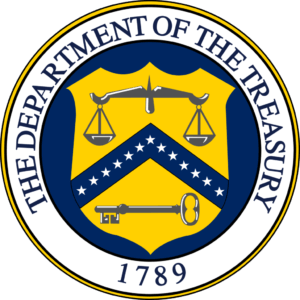 On March 2, 2025, the Treasury Department announced suspension of the March 21, 2025 deadline for filing under the Corporate Transparency Act (CTA) for any domestic companies or U.S. citizens.
On March 2, 2025, the Treasury Department announced suspension of the March 21, 2025 deadline for filing under the Corporate Transparency Act (CTA) for any domestic companies or U.S. citizens.
Treasury said that it is preparing a proposed rulemaking to narrow the scope of the rule to foreign reporting companies only. “Foreign reporting companies,” under the present formulation, are entities (including corporations and limited liability companies) formed under the law of a foreign country that have registered to do business in the U.S. by filing a document with a secretary of state or any similar office.
While the rule may be subject to legal challenge, as the narrowing proposed by the Treasury Department is inconsistent with the text of the CTA itself, it is not clear who, if anyone, would challenge the new proposed rules. Congress is also contemplating changes to the law.
The determination from Treasury follows the February 17, 2025 decision out of the Eastern District of Texas in Smith v. United States Department of the Treasury, which lifted the last remaining nationwide preliminary injunction on enforcement of the filing deadline, following the Supreme Court’s stay of the injunction in Texas Top Cop Shop, Inc., et al. v. Merrick Garland, et al., earlier this year. Read more
Five Ways to Strengthen Your Institution for a Falling Rate Cycle
Mark Egan, Financial Brand
 Banks and credit unions need to rethink funding approaches beyond CDs, focusing on building lasting customer relationships instead of chasing rate shoppers, preparing for tighter margins and potential credit quality issues, being patient with rate adjustments, and breaking down product silos through integrated data strategies.
Banks and credit unions need to rethink funding approaches beyond CDs, focusing on building lasting customer relationships instead of chasing rate shoppers, preparing for tighter margins and potential credit quality issues, being patient with rate adjustments, and breaking down product silos through integrated data strategies.
We’ve seen this movie before, but it’s been a while.
Not since the early 80s and the early aughts have banks and credit unions needed to manage through a declining interest rate environment. Since both those eras ended in rising failures, a refresher course on how to navigate may be in order. For financial institution marketers in particular, the most important thing to remember is that interest rates aren’t just about your institution’s spread income—they’re about your customers and your product line.
“Institutions focus on the wrong thing. They see a funding problem — 100% real — but if they zoom out, they’d see a consumer problem underneath that,” said Ryan Walker, SVP of Business Value Engineering at Kasasa, a financial services company that partners with small banks and credit unions so those institutions can offer customers more competitive products.
Right now, after years of high interest rates, the American consumer is showing signs of strain, according to the Federal Reserve Bank of Philadelphia. The percentage of people making minimum payments on their credit card rose to 10.75% in the third quarter of 2024, the highest in 12 years. And the percentage of delinquent balances rose to 3.52%, up more than 10% year-over-year. The only positive is that delinquencies remain well below the 6.8% peak of the 2008-09 global financial crisis.
The underlying message for banks and credit unions is that there’s still time to strengthen product offerings and customer relationships to position your business for the challenges ahead. Here are five strategies and tactics that will enable your institution to meet the uncertainties of the current monetary policy cycle. Read more
Feb. 28, 2025: Industry & Regulation
- U.S. Senate Panel Presses Consumer Watchdog Pick Over Agency Stoppage
- NASCUS Summary: NCUA Board Meeting
- U.S. Bank Profits Climb as Regulator Adjusts ‘Problem Bank’ Tracking
- The FDIC’s Goal Is to Prevent Another Banking Crisis. It’s Now Also a Trump Target
U.S. Senate Panel Presses Consumer Watchdog Pick Over Agency Stoppage
Douglas Gillison and Pete Schroeder, Reuters
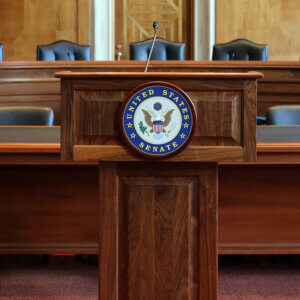 President Trump’s pick to oversee a consumer watchdog faced a grilling from Democrats in the U.S. Senate on Thursday as the White House presses ahead with aggressive efforts to dismantle the agency.
President Trump’s pick to oversee a consumer watchdog faced a grilling from Democrats in the U.S. Senate on Thursday as the White House presses ahead with aggressive efforts to dismantle the agency.
Jonathan McKernan, nominated to lead the Consumer Financial Protection Bureau, vowed before the Senate Banking Committee he would “fully and faithfully” enforce consumer financial protection laws. But he maintained the agency had previously operated beyond those responsibilities, and needs to be streamlined and made more accountable.
McKernan was pressed by Senator Elizabeth Warren, the top Democrat on the panel who helped establish the agency after its creation in 2010. She in particular challenged McKernan’s ability to effectively lead the agency while the Trump administration moves aggressively to curtail it. “It kind of feels like you’ve been lined up to be the number one horse at the glue factory,” she said.
Thursday’s hearing marked the first time Democrats, incensed at the dismantling of an agency they view as a critical safeguard for consumers using financial products, were able to directly press a Republican official on the future of the agency.
Under the acting leadership of Office of Management and Budget Director Russ Vought, the CFPB has been effectively shuttered, with the agency’s doors locked and most staff placed on administrative leave. Signs on the agency’s headquarters next to the White House have been removed, and its lease is being canceled in a bid to create a more “streamlined” agency, according to court filings. The agency has also begun dropping lawsuits it had filed against financial firms under previous leadership. Read more
NASCUS Summary: NCUA Board Meeting
 NCUA Board Chair Kyle Hauptman led his first board meeting as chair. The agenda initially included two items:
NCUA Board Chair Kyle Hauptman led his first board meeting as chair. The agenda initially included two items:
- Board Briefing: Share Insurance Fund (SIF) Quarterly Report
- Designation of NCUA Vice Chair (later removed before the meeting).
Board members emphasized their commitment to collaboration and the agency’s role in ensuring a safe and sound credit union system.
Share Insurance Fund (SIF) Report – Q4 2024
NCUA CFO Eugene Schied presented the quarterly report, highlighting:
- Audit Results: KPMG issued a “clean opinion with no reportable conditions” on NCUA’s financial statements.
- Equity Ratio: Held steady at 1.30%, exceeding NCUA projections by 2 basis points and the statutory minimum by 10 basis points.
- CAMELS Code Ratings:
- Credit unions rated 4 or 5: 135 (down from 138 in Q3), totaling $18.5 billion in assets.
- Credit unions rated 3: 715 (down from 730), with assets decreasing to $188.8 billion from $189.8 billion in Q3.
- Credit Union Failures: Three federally insured credit unions failed in 2024, costing the SIF $2.03 million. All failures were resolved through mergers, with no fraud involved.
The briefing materials and full report are available here
Related Reading: NCUA Board Meeting Coverage: Agency Warns Staff Cuts Could Force An Increase In NCUSIF Normal Operating Level
U.S. Bank Profits Climb as Regulator Adjusts ‘Problem Bank’ Tracking
Pete Schroeder, Yahoo Finance/Reuters
 U.S. banking sector profits rose 2.3% to $66.8 billion in the fourth quarter of 2024, a bank regulator reported on Tuesday, as it also announced moves to update how so-called problem banks are tracked.
U.S. banking sector profits rose 2.3% to $66.8 billion in the fourth quarter of 2024, a bank regulator reported on Tuesday, as it also announced moves to update how so-called problem banks are tracked.
In its latest quarterly report, the Federal Deposit Insurance Corporation said it is revising its “problem bank” list to say only how many banks have been downgraded by regulators. The FDIC will no longer disclose how many assets are held at those banks.
FDIC Acting Chairman Travis Hill said in a statement that the practice of disclosing how many assets are at problem banks, first established in 1990, has become problematic because the growth of large firms has made it “comparatively easier” to identify when a big bank is added to the list.
Hill said disclosing assets could spur a bank run if the public saw a large jump in total assets on the list and tried to determine which large firm was deemed problematic by watchdogs. Bank supervisors may also be reluctant to downgrade a large bank, knowing the jump in total assets at problem banks could spark instability, Hill added.
The FDIC reported 66 problem banks in the fourth quarter, down from 68 the prior quarter. Overall, the banking sector reported healthy numbers, posting a 5.6% increase in 2024 year-long profits to $268.2 billion. The FDIC said the boost in fourth-quarter profits was mainly due to recent short-term interest rate cuts, which helped boost net interest income by $3.8 billion for banks, as interest expenses shrank more than interest income. Read more
The FDIC’s Goal Is to Prevent Another Banking Crisis. It’s Now Also a Trump Target
Maria Aspan, NPR
 President Trump’s sweeping cuts to the U.S. government are hitting a crucial part of the financial system: the independent agency responsible for preventing future banking crises.
President Trump’s sweeping cuts to the U.S. government are hitting a crucial part of the financial system: the independent agency responsible for preventing future banking crises.
The Federal Deposit Insurance Corp. (FDIC) is responsible for insuring consumer deposits against bank failures — and for preventing those failures in the first place.
Since its creation 92 years ago, during a national panic that closed thousands of banks, the FDIC has performed some of the unglamorous but crucial work of ensuring financial stability. Its very existence reassures consumers and businesses that their money is safe, by insuring deposits of up to $250,000.
And its employees closely monitor most of the United States’ smaller banks — warning lenders if, for example, their debt levels are edging too high or if they’re taking on too much risky business.
The end goal of these examinations is to catch any problems before they snowball into a bank failure — or a wider banking crisis. In those worst-case scenarios, the FDIC is also responsible for taking over failed banks.
But the agency has been struggling with several internal problems, including staffing shortages and widespread employee complaints about a toxic culture. The FDIC says that its staffing problems have already made it harder to adequately supervise banks and reduce the risk of bank failures. Read more
Feb. 21, 2025: Industry & Regulation
- DOGE to Lead Trump’s Purge of Federal Regulations
- CTA’s Beneficial Ownership Reporting Requirement Resumes – At Least for Now
- Bowman Calls for ‘System Maintenance’ on Fed Supervision, Rules, Applications
- Banks Reassess Community Lending Risk After Trump Funding Freeze
DOGE to Lead Trump’s Purge of Federal Regulations
Stephanie Lai and Josh Wingrove, Bloomberg
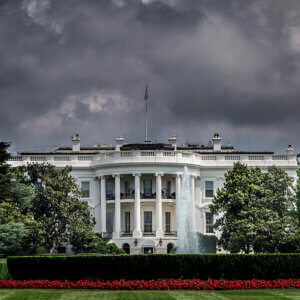 President Trump signed an executive order undertaking a massive regulatory review in a bid to fulfill his campaign pledge of eliminating rules he says stifle businesses and innovation.
President Trump signed an executive order undertaking a massive regulatory review in a bid to fulfill his campaign pledge of eliminating rules he says stifle businesses and innovation.
The order requires all agencies to review all regulations to ensure they align with the administration’s policies and billionaire Elon Musk’s DOGE effort, which seeks to slash federal spending and personnel, according to a White House fact sheet.
DOGE and the White House’s Office of Management and Budget will develop a regulatory agenda to rescind or scale back rules that don’t align with Trump’s vision, the fact sheet said. The order calls on agencies to not prioritize enforcement actions that “stretch statutory authority or exceed the constitutional powers of the Federal Government,” the document said.
The directive gives more power to the cost-cutting efforts overseen by Musk even as the initiative faces legal questions about its authority and scope. Trump also signed a directive eliminating or minimizing a dozen federal entities as he looks to slash government spending and programs.
The Community Bank Advisory Council and Credit Union Advisory Council would shutter within two weeks, as would other federal advisory councils on long COVID, health equity, and voluntary foreign aid. Read more
- Related Reading: Executive Order Outlines Presidential Supervision and Control of the Entire Executive Branch, Including NCUA and CFPB
CTA’s Beneficial Ownership Reporting Requirement Resumes – At Least for Now
Rachael Aspery, Douglas Charnas, David Waxman, McGlinchey Stafford/JD Supra
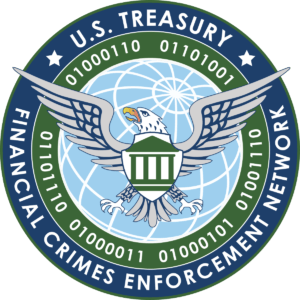 As the saga of on-again-off-again requirements continues to unfold, FinCEN’s Beneficial Ownership Information (BOI) reporting requirements under the Corporate Transparency Act (CTA) have undergone significant changes due to recent legal developments.
As the saga of on-again-off-again requirements continues to unfold, FinCEN’s Beneficial Ownership Information (BOI) reporting requirements under the Corporate Transparency Act (CTA) have undergone significant changes due to recent legal developments.
On February 18, 2025, the U.S. District Court for the Eastern District of Texas in Smith, et al. v. U.S. Department of the Treasury, et al., 6:24-cv-00336 (E.D. Tex.) lifted the injunction on the CTA, putting the BOI reporting requirements back into effect.
In response to this decision, FinCEN has extended the reporting deadlines.
Updated Reporting Deadlines
- The new deadline for the majority of reporting companies to file initial, updated, and/or corrected BOI reports is now March 21, 2025.
- Companies previously given a reporting deadline later than March 21, 2025 (e.g., plaintiffs in National Small Business v. Yellen and those qualifying for disaster relief extensions) should adhere to their original deadlines.
Ongoing Developments: FinCEN has announced some important updates
- A 30-day period during which FinCEN will assess options to further modify deadlines while prioritizing reporting for entities that pose the most significant national security risks.
- FinCEN also intends to initiate a process this year to revise the BOI reporting rule to reduce the burden for lower-risk entities, including many U.S. small businesses. Read more
Bowman Calls for ‘System Maintenance’ on Fed Supervision, Rules, Applications
ABA Banking Journal
 The Federal Reserve’s regulations and supervisory process require significant “maintenance” to meet the Fed’s statutory mandate on safe and sound banking, Fed Governor Michelle Bowman said today. In a major speech at ABA’s Conference for Community Bankers in Phoenix—coming as current Fed Vice Chair for Supervision Michael Barr is stepping down from that post at the end of the month—Bowman laid out her vision for a revamp of the Fed’s supervisory and regulatory system.
The Federal Reserve’s regulations and supervisory process require significant “maintenance” to meet the Fed’s statutory mandate on safe and sound banking, Fed Governor Michelle Bowman said today. In a major speech at ABA’s Conference for Community Bankers in Phoenix—coming as current Fed Vice Chair for Supervision Michael Barr is stepping down from that post at the end of the month—Bowman laid out her vision for a revamp of the Fed’s supervisory and regulatory system.
Supervisory and regulatory ‘system maintenance’
On supervision, she warned that there is an “odd mismatch” between the financial condition of large banks and the supervisory rating they received, asking “whether subjective examiner judgment—those evaluations based on subjective, examiner-driven, non-financial concerns—is driving the firm’s overall rating.” Bowman argued that Fed supervision may have “de-prioritized” core financial risks and “over-emphasized” non-financial risks like IT, operational risk, internal controls and governance—a shift she noted that been observed in supervision of banks of all sizes.
“We should also be vigilant and deliberate about any shift in supervisory focus from financial risk toward non-financial risks and internal processes, as this shift is not focused on fundamental safety and soundness issues and it is not cost-free,” Bowman explained. Read more
Banks Reassess Community Lending Risk After Trump Funding Freeze
Emily Flitter and Yizhu Wang, Bloomberg
 President Donald Trump’s mandate to pause all federal loans and grants, albeit short-lived, is raising questions about US banks’ ongoing support for nonprofit community groups.
President Donald Trump’s mandate to pause all federal loans and grants, albeit short-lived, is raising questions about US banks’ ongoing support for nonprofit community groups.
From Wall Street giants like Bank of America Corp. and JPMorgan Chase & Co. to smaller regional and community lenders, banks have hundreds of billions of dollars in loan exposure to people and groups that rely in some part on federal assistance. They loaned about $150 billion to community development groups and more than $320 billion to borrowers in low-income areas in 2022, according to the latest figures compiled by the National Community Reinvestment Coalition.
Without federal funding, the creditworthiness of those groups suddenly came into focus last week, forcing their bankers to start figuring out a game plan before the order was rescinded a day and a half later, according to sources with knowledge of the banks’ inner workings.
At one regional bank, an executive for community development began examining cash flows of the bank’s nonprofit clients to try to map out their ability to repay current loans and their potential creditworthiness in the future, according to one of the sources, who declined to be identified because the deliberations were private. Other banks noticed larger nonprofits moving to draw down on revolving lines of credit, prompting bankers to reassess whether to provide these kinds of loans in the future. Read more
Feb. 14, 2025: Industry & Regulation
- FDIC Acting Chairman Hill Supports Modernizing Customer Identification Program Requirements
- U.S. House Passes Bill to Update Federal Credit Union Board Meeting Rules
- Cannabis Industry Faces Debt Reckoning Without Bankruptcy Help
- Trump’s Choice to Lead CFPB, McKernan, Left FDIC Monday
FDIC Acting Chairman Hill Supports Modernizing Customer Identification Program Requirements
Troutman Pepper Locke
 In a recent letter to Andrea Gacki, Director of the Financial Crimes Enforcement Network (FinCEN), Federal Deposit Insurance Corporation (FDIC) Acting Chairman Travis Hill expressed his support for updating the Customer Identification Program (CIP) requirements to better align with modern financial services practices. This initiative is part of Hill’s broader commitment to regulatory reform and innovation, as outlined in his recent policy statements.
In a recent letter to Andrea Gacki, Director of the Financial Crimes Enforcement Network (FinCEN), Federal Deposit Insurance Corporation (FDIC) Acting Chairman Travis Hill expressed his support for updating the Customer Identification Program (CIP) requirements to better align with modern financial services practices. This initiative is part of Hill’s broader commitment to regulatory reform and innovation, as outlined in his recent policy statements.
Background on Hill’s Policy Direction
As discussed here, since becoming Acting Chairman of the FDIC on January 20, Travis Hill has emphasized several key priorities, including regulatory review, innovation, and a focus on core financial risks. Hill has advocated for a comprehensive review of regulations to promote economic growth and has called for a more open-minded approach to fintech partnerships and technology adoption. His policy direction also includes improving the bank merger approval process, enhancing supervisory and capital adjustments, and modernizing the implementation of the Bank Secrecy Act.
Key Points from Hill’s Letter to FinCEN
In his letter dated February 7, Hill highlighted the need to update CIP requirements to reflect current financial services practices. He noted that many nonbank fintech companies use processes where customers provide the last four digits of their tax identification number (TIN) and give permission to obtain the rest of the TIN from a trusted third-party source, such as a consumer reporting agency. Hill pointed out that many banks have requested the ability to onboard customers in this manner but believe the current CIP rule does not permit such an approach. Read more
U.S. House Passes Bill to Update Federal Credit Union Board Meeting Rules
Melina Druga, Financial Regulation News
 The U.S. House of Representatives on Feb. 10 voted to pass bipartisan legislation that would update the requirements for federal credit union board meetings.
The U.S. House of Representatives on Feb. 10 voted to pass bipartisan legislation that would update the requirements for federal credit union board meetings.
H.R. 975, the Credit Union Board Modernization Act, would allow federal credit union boards in good standing to meet every other month. Currently, the boards meet monthly.
“Under H.R. 975, certain well-functioning credit unions are provided with the option to meet at least six times annually, with at least one meeting held during each fiscal quarter,” U.S. Rep. French Hill (R-AR), House Financial Services Committee chairman, said. “This crucial change frees up the time and resources used for meetings to be put toward the critical mission of providing financial services to the credit union’s members.”
U.S. Reps. Juan Vargas (D-CA) and Bill Huizenga (R-MI) introduced the bill. Both are House Financial Services Committee members.
“This is a critical step towards making sure credit unions have more time and resources to dedicate to serving our communities,” Vargas said. Read more
Cannabis Industry Faces Debt Reckoning Without Bankruptcy Help
Steven Church and Reshmi Basu, Bloomberg
 If it were like most companies on the losing end of a boom and bust cycle, Schwazze could just turn to the US bankruptcy court to keep its creditors at bay while renegotiating its debt.
If it were like most companies on the losing end of a boom and bust cycle, Schwazze could just turn to the US bankruptcy court to keep its creditors at bay while renegotiating its debt.
But unlike most businesses, its product — marijuana — is still illegal in the eyes of the federal government.
That disadvantage will make it harder for Schwazze and other cannabis companies to win concessions from lenders just as a wave of debt that the industry borrowed in recent years to expand in states where weed is legal comes due. The biggest companies, those that operate in more than one state, have as much as $6 billion in debt maturing next year, according to Beau Whitney, chief economist at Whitney Economics, which specializes in the cannabis market.
The reckoning comes as the industry has failed to turn legal weed into reliable profits. In 2022 more than 42% of dealers reported making a profit, according to a survey by Whitney. By last year, the number had dropped to about 27%. Some who can’t consolidate will fail and go out of business. Many will be forced to refinance their debt at higher interest rates and onerous contractual covenants. Read more
Trump’s choice to lead CFPB, McKernan, left FDIC Monday
By Mark Schoeff Jr., RollCall
 Work at the consumer protection bureau stopped in recent days
Work at the consumer protection bureau stopped in recent days
President Donald Trump nominated Jonathan McKernan to be director of the Consumer Financial Protection Bureau in an indication that he wants more than an acting head at an agency that his administration closed for this week.
Trump tapped McKernan, a former director at the Federal Deposit Insurance Corporation, for a five-year term at the helm of the CFPB. The nomination may suggest the administration is seeking to change the agency, rather than shut it down, as many Democrats suspect.
“The nomination of McKernan indicates an interest in having the agency continue to function, albeit in a much more limited capacity,” said Andrew Glass, a partner in the consumer financial services practice at the Boston office of law firm K&L Gates.
McKernan’s nomination was one of several financial regulator picks published Wednesday in the Congressional Record.
Trump also nominated Jonathan Gould, a partner at the law firm Jones Day, for a five-year term as comptroller of the currency, and Brian Quintenz, global head of policy at a16z crypto, a venture capital fund, to be chairman of the Commodity Futures Trading Commission and commissioner for a term expiring in 2029. Read more
Feb. 7, 2025: Industry & Regulation
- Senate Debanking Hearing Won’t Include Cannabis Witnesses; Federal Reform Unlikely This Congress
- It’s Time for An Honest Conversation About ‘Debanking’
- OPINION: Why Banks May Be Hoping You’re Not Paying Attention
- CSBS Files Third Amicus Brief in Support of State Consumer Protection Laws
Senate Debanking Hearing Won’t Include Cannabis Witnesses; Federal Reform Unlikely This Congress
Tony Lange, Cannabis Business Times
 After former Senate Majority Leader Chuck Schumer sat on the SAFER Banking Act for 15 months, reform remains slim under a new Republican majority.
After former Senate Majority Leader Chuck Schumer sat on the SAFER Banking Act for 15 months, reform remains slim under a new Republican majority.
Senate Democrats had four years to pass federal cannabis banking legislation with a majority in the upper chamber throughout Joe Biden’s presidency. Still, they fumbled the opportunity under Sen. Chuck Schumer’s tutelage.
The former majority leader from New York sat idle for 15 months following the Senate Banking Committee’s passage of the Secure and Fair Enforcement Regulation (SAFER) Banking Act in September 2023.
Although Schumer vowed at the time that he would bring the legislation to a full floor vote “with all due speed,” he failed to follow through despite having the likely support for the bill’s passage last Congress, including 44 Democrats, 15 Republicans and up to nine swayable votes.
Federal cannabis banking reform, which would provide safe harbor to financial institutions wishing to provide services to the industry, had never stood a better chance in the upper chamber. Following November’s election, Republicans reclaimed a majority in the U.S. Senate, 53-47, retained their majority in the House and took back the White House for a GOP trifecta.
Although President Donald Trump indicated he would work with Congress to pass common-sense laws, including safe banking for state-authorized cannabis companies, access to traditional business opportunities like credit cards, payroll and loans doesn’t appear any closer to becoming a reality for the industry under new Republican leadership in the Senate. Read more
It’s Time for An Honest Conversation About ‘Debanking’
Travis Norton, American Banker
 The Senate Banking Committee’s hearing this week on “debanking” examines the hypothesis that federal banking regulators have forced financial institutions to end customer relationships and close accounts improperly.
The Senate Banking Committee’s hearing this week on “debanking” examines the hypothesis that federal banking regulators have forced financial institutions to end customer relationships and close accounts improperly.
That last word — improperly — requires unpacking. Everyone should agree that if the impetus for forcing a bank to terminate a customer relationship is a regulator’s distaste for a customer’s line of business (gun manufacturers, oil and gas drilling) or politics, the exercise of regulatory pressure through prudential supervision is abhorrent and unconstitutional. This was unfortunately the premise of Operation Chokepoint during the Obama administration. Congress should take steps to ensure political and speech discrimination in bank supervision is penalized.
But it is important not to let convenience be the enemy of thoughtful examination. What Congress is actually facing is the tension between increased risk to the banking system (the Deposit Insurance Fund) and something that approaches a federally guaranteed right to individual banking services.
Data — not mere opinion — shows that certain kinds of banking customers’ accounts have characteristics that cause risk to a bank. These characteristics may include significantly higher volatility in demand deposit accounts, or a more complex account transaction profile that needs expert transaction-level anti-money-laundering compliance for, say, a fintech customer or partner that “nests” customer money in a “for the benefit of” account. The immense damage that fintech firm Synapse wrought on Evolve Bank & Trust in 2024, documented by court-appointed trustee Jelena McWilliams, demonstrates this phenomenon. Read more
OPINION: Why Banks May Be Hoping You’re Not Paying Attention
Ben Blatt, New York Times
 They have no fiduciary duty in many cases and can profit from customers’ confusion. But where’s the line between unsavory and illegal?
They have no fiduciary duty in many cases and can profit from customers’ confusion. But where’s the line between unsavory and illegal?
The median American household has a combined balance of $10,000 in its checking and savings accounts, according to a census estimate. For the last few years, anyone keeping this amount in a high-yield savings account has earned close to 4 percent annual interest, or about $400 a year.
But the average savings account interest rate is closer to 0.4 percent. And the nation’s three largest banks — Bank of America, Chase and Wells Fargo — offer 0.01 percent on their standard savings accounts. That works out to $1 in interest a year for a $10,000 deposit.
Banks make up for those dismal rates with perks like numerous branches and A.T.M.s, but they also know many of their customers won’t hunt for better deals out of inertia.
The Consumer Financial Protection Bureau said one bank, Capital One, went too far by intentionally creating confusion so that customers wouldn’t know to switch to a higher-paying account at the same bank.
The consumer bureau sued Capital One in mid-January, arguing that the bank misled customers by creating a new high-yield account called 360 Performance Savings, while letting an existing account, 360 Savings, languish at a lower interest rate. The bank had earlier advertised that account as having “one of the nation’s highest savings rates.” Read more
CSBS Files Third Amicus Brief in Support of State Consumer Protection Laws
Conference of State Bank Supervisors
 The Conference of State Bank Supervisors (CSBS) this week filed an amicus brief in the 9th Circuit Court of Appeals to highlight the importance of upholding state consumer protection laws when erroneously challenged by national banks. It is the third such amicus brief since the Supreme Court’s unanimous decision in Cantero v. Bank of America that courts must take a nuanced approach to preempting state consumer protection laws.
The Conference of State Bank Supervisors (CSBS) this week filed an amicus brief in the 9th Circuit Court of Appeals to highlight the importance of upholding state consumer protection laws when erroneously challenged by national banks. It is the third such amicus brief since the Supreme Court’s unanimous decision in Cantero v. Bank of America that courts must take a nuanced approach to preempting state consumer protection laws.
In the 9th Circuit case, Kivett v. Flagstar Bank N.A, a national bank seeks to avoid complying with a California law requiring mortgage servicers to pay interest on mortgage escrow accounts. CSBS recommended that the court perform a nuanced analysis of the state interest on escrow law, which would dictate that the law should be upheld.
The other briefs were filed in the Second Circuit for remand of the Cantero case and in the First Circuit case Conti v. Citizens Bank, N.A. CSBS is committed to ensuring states can protect their consumers, and the regulatory failures leading up to the mortgage crisis are not repeated.
Jan. 31, 2025: Industry & Regulation
- OPINION: Finance Dreams of a Deregulatory Utopia
- Fintechs May Gain at Banks’ Expense in Trump Era
- Lawyer Group Urges Overhaul to Ease U.S. Process for Setting Up New Banks
- Kansas Bank’s Suit Could Upend FDIC Enforcement Authority
OPINION: Finance Dreams of a Deregulatory Utopia
Felix Salmon, Axios
 The financial services industry is very excited about the prospect that the Trump administration will go on a massive deregulation spree.
The financial services industry is very excited about the prospect that the Trump administration will go on a massive deregulation spree.
Why it matters: Financial services is one of the most heavily regulated industries in the world, where compliance costs can soar into the billions of dollars and where getting innovations approved can take years.
The big picture: By the end of the Biden administration, banks were openly at war with their regulators, filing multiple lawsuits saying they were going too far.
“It’s time to fight back. I’ve had it with this s—,” JPMorgan CEO Jamie Dimon said at a banking conference just before the election. Driving the news: Michele Alt, cofounder of advisory firm Klaros, has sent a pointed letter to bank regulators, urging them to make it vastly easier to start up new banks.
Existing regulations, she writes, have created “a nearly impenetrable barrier to entry into the banking market.” Specifically, Alt notes, regulators under both Trump 1.0 and Biden have effectively prevented financial technology companies from either forming or acquiring banks.
Zoom out: Investors and nonbank entities with financial aspirations have also been feeling stifled by regulators, and are looking forward to taking advantage of a lighter hand in Washington.
- Trump Media and Technology Group is a prime example, announcing its move into financial services the week after the inauguration.
- Elon Musk’s platform X is making similar moves. Read more
Fintechs May Gain at Banks’ Expense in Trump Era
Lynne Marek, Payments Dive
 The Trump administration may usher in policies that buttress the aspirations of new entrant payments players and increase competition for banks.
The Trump administration may usher in policies that buttress the aspirations of new entrant payments players and increase competition for banks.
President Trump’s return to the White House this year is likely to mean opportunity and change for the fast-evolving payments industry.
Payment fintechs, which have proliferated over the past decade, have been eagerly lobbying for regulatory leeway to offer more services, with less government friction. Trump’s administration is likely to give it to them, but that doesn’t mean there won’t be tumult and uncertainty over how the new era progresses, say lawyers who are familiar with the industry.
Fintechs have been begging for more credibility with the federal government for years, seeking to secure some of the same privileges as U.S. banks and credit unions.
National bank charter prospects
With Trump’s administration expected to be more friendly to business interests and innovation, non-bank payments players may finally see a path in pushing the Treasury Department toward creation of a special purpose national bank charter, allowing fintechs to operate in certain areas without a bank license or partner, said Freshfields partner David Sewell.
That quest has bridged Republican and Democratic presidencies despite states’ objections, with attempts at introducing it through the Office of the Comptroller of the Currency, explained Sewell, who heads Freshfields’ U.S. financial services regulatory work. Read more
Lawyer Group Urges Overhaul to Ease U.S. Process for Setting Up New Banks
Niket Nishant, Reuters
 U.S. regulators must simplify the authorization process for setting up new banks, a group of lawyers wrote in a letter to the incoming leadership of banking agencies, emphasizing the industry’s need to adapt in the fintech era.
U.S. regulators must simplify the authorization process for setting up new banks, a group of lawyers wrote in a letter to the incoming leadership of banking agencies, emphasizing the industry’s need to adapt in the fintech era.
Current “bureaucratic inefficiencies” had led to a “nearly impenetrable barrier to entry” and regulators need to encourage the formation of new banks to enhance competition, the group said in the letter set to be released on Monday, a copy of which was seen by Reuters.
“Banking is a recognized driver in our economy. The Supreme Court has articulated that concentrations in banking lead to concentrations in the economy,” said Michele Alt, co-founder of financial advisory firm Klaros Group and leader of the initiative.
The letter comes at a time when corporate executives are hoping for a pro-business regulatory climate under U.S. President Donald Trump, who has pledged to cut excessive red tape.
Kansas Bank’s Suit Could Upend FDIC Enforcement Authority
Jonathan Harrington, Law 360/Bradley
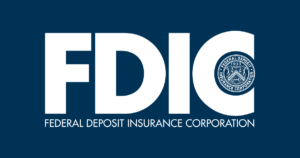 On Nov. 19, 2024, the Federal Deposit Insurance Corp. issued a notice of assessment finding that between December 2018 and August 2020, CBW Bank — a single-branch bank in Weir, Kansas — failed to maintain an adequate anti-money laundering/countering the financing of terrorism compliance program.
On Nov. 19, 2024, the Federal Deposit Insurance Corp. issued a notice of assessment finding that between December 2018 and August 2020, CBW Bank — a single-branch bank in Weir, Kansas — failed to maintain an adequate anti-money laundering/countering the financing of terrorism compliance program.
According to the regulator, the bank’s inadequate AML/CFT compliance program led to multiple violations of the Bank Secrecy Act and represented a “pattern of misconduct.”[1]
Why care about alleged BSA and AML failings at a small-town bank in Kansas? You should care because the FDIC assessed a $20 million civil penalty against a bank with approximately $60 million in total deposits.
Given the size of the penalty relative to the size of the bank, the assessment represents an existential threat to the institution’s survival.
CBW responded by filing a lawsuit challenging the constitutionality of the FDIC’s Office of Financial Institution Adjudication’s authority to adjudicate the bank’s objection to the notice of assessment.
Among other theories, the bank argues that an administrative law hearing to contest the civil penalty would deprive CBW of its Seventh Amendment right to a jury trial. Read more
Jan. 24, 2025: Industry & Regulation
- Top Financial Watchdog Warns Climate Change Set to Trigger Market Panics
- Will Trump 2.0 Be Revolutionary or Evolutionary for the Banking Industry?
- FDIC Acting Chair Hill Lays Out New Regulatory Priorities
- Kyle S. Hauptman Designated as NCUA Board Chairman
Top Financial Watchdog Warns Climate Change Set to Trigger Market Panics
Martin Arnold and Lee Harris, Financial Times
 The world’s financial stability watchdog has warned that disasters caused by climate change are increasingly likely to trigger broader panic in financial markets.
The world’s financial stability watchdog has warned that disasters caused by climate change are increasingly likely to trigger broader panic in financial markets.
The world breached 1.5C of warming above preindustrial levels for the first time last year, raising the prospect of more environmental disasters. The Financial Stability Board said the financial damage of climate shocks such as floods, droughts, fires, or storms could cause a broader pullback in lending and a down turn in investor confidence.
“Banks could reduce lending, including for recovery to already vulnerable households and corporates,” the body, which brings together the world’s central bankers, ministers, and regulators, said. “There could also be an abrupt, broad-based repricing of climate-physical risk, as the expectation of larger future losses are incorporated into current prices and impact sectors and jurisdictions not currently directly affected by disasters.”
The report comes amid broader concerns about the capacity of the insurance sector to cover losses associated with climate change following devastating fires in Los Angeles that are estimated to have caused tens of billions of dollars worth of damages. The Californian crisis has put the spotlight on how some major companies have been pulling out of the state, leaving about 10 percent of residences without home insurance and many others reliant on a non-profit insurer of last resort.
Leading reinsurance groups are also paring back their exposure to natural catastrophe risks, while US lender Wells Fargo believes insurance payouts for the Californian fires could reach $30bn. Read more
Will Trump 2.0 Be Revolutionary or Evolutionary for the Banking Industry?
Steve Cocheo, The Financial Brand
 Banks anticipate a softer regulatory touch and the chance to undo some Biden-era moves. But an innovation-friendly Trump II will also lighten up on competitors.
Banks anticipate a softer regulatory touch and the chance to undo some Biden-era moves. But an innovation-friendly Trump II will also lighten up on competitors.
The first batch of changes in Washington have been underway even before President Trump’s inauguration. The nominee for Treasury Secretary, Scott Bessent, has already been through his confirmation hearing before the new president had even been sworn in. And a steady trouping of tech chieftains arriving to kiss the presidential ring has made this a transition period to remember.
The transition is now over and the second Trump presidency has officially begun, along with slim Republican majorities in both the House and Senate.
Beyond a new head of state, new chairs head the House and Senate committees handling banking and new heads will be picked and confirmed for two of the three prudential banking regulators as well as for the Consumer Financial Protection Bureau — as well as other departments and agencies important to financial services.
The reinvigorated federal interest in artificial intelligence and digital assets has resulted in appointment of the first White House AI and crypto “czar” — an unofficial term going back decades that, crucially, differs from traditional regulatory and cabinet appointments in that it doesn’t require Senate confirmation. The present and future role of Elon Musk and company in the direction of federal government structure, policy and staffing raises the term “influencer” to a new level. [Read executive order establishing the Department of Government Efficiency.]
What’s in store for banking? The history of federal banking legislation, regulation and supervision would seem to favor incremental or gradual, change, barring a crisis. At least, that would be a reasonable assumption based on an understanding of the way things in financial services in the nation’s capital typically work.
To a degree, observers say, some things may play out that way. But other matters may follow a new script.
“Much of the commentary I’ve seen is in the framework of established rules and norms. But as we’ve seen, established rules and norms do not particularly constrain Donald Trump,” says Michele Alt, partner at Klaros Group and a 22-year veteran of the Comptroller of the Currency’s legal wing. Read more
FDIC Acting Chair Hill Lays Out New Regulatory Priorities
Ebrima Santos Sanneh, Amercian Banker
 The Federal Deposit Insurance Corp.’s newly appointed Acting Chairman Travis Hill — formerly the vice chair of the agency — Tuesday issued a statement saying he expects the agency to begin reviewing and repealing Biden-era bank regulations, take a softer approach to fintech and crypto, addressing so-called debanking and repairing the agency’s struggling workplace culture.
The Federal Deposit Insurance Corp.’s newly appointed Acting Chairman Travis Hill — formerly the vice chair of the agency — Tuesday issued a statement saying he expects the agency to begin reviewing and repealing Biden-era bank regulations, take a softer approach to fintech and crypto, addressing so-called debanking and repairing the agency’s struggling workplace culture.
“It is my honor and privilege to serve as acting chairman of the FDIC,” Hill said in a statement. “While the FDIC faces a broad range of issues, and as always will fulfill our mandate to promote a safe, sound, and resilient banking system.”
Exclusive: Rep. Andy Barr to Reintroduce De Novo Bank Bill
The comments from Hill — whom Trump appointed to the temporary role shortly after his inauguration on Monday — echo many of the priorities Hill laid out in a speech earlier in January to the American Bar Association, as well as several new priorities.
Hill on Tuesday called for a sweeping review of regulations to ensure they promote economic growth. He also reiterated his call for the FDIC to take a more transparent approach to fintech partnerships and digital assets, adding he also would like to see “engagement to address growing technology costs for community banks.”
While Hill made mention of the FDIC’s policy for considering mergers in his previous speech, on Tuesday he proposed replacing the agency’s 2024 Statement of Policy on bank mergers to expedite approvals for transactions while maintaining legal requirements for reviewing bank combinations. Read more
Kyle S. Hauptman Designated as NCUA Board Chairman
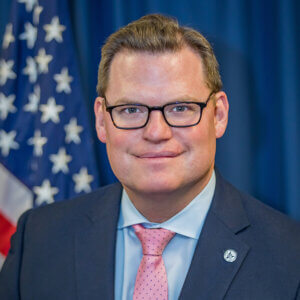 President Donald J. Trump has This is an external link to a website belonging to another federal agency, private organization, or commercial entity.designated National Credit Union Administration Vice Chairman Kyle S. Hauptman as the thirteenth Chairman of the NCUA Board.
President Donald J. Trump has This is an external link to a website belonging to another federal agency, private organization, or commercial entity.designated National Credit Union Administration Vice Chairman Kyle S. Hauptman as the thirteenth Chairman of the NCUA Board.
“I am deeply honored that President Trump has asked me to serve as Chairman of NCUA,” Chairman Hauptman said. “I look forward to leading the agency’s dedicated professionals and working with my Board colleagues to create a regulatory structure that promotes growth, opportunity, and innovation within the credit union system.
“My priorities as Chairman include:
- Re-examining the current NCUA budgeting process.
- Convening groups of NCUA employees to identify achievable internal efficiencies to reduce unnecessary frictions in the agency’s operations.
- Promoting the appropriate use of artificial intelligence (AI) as a tool for NCUA employees. One goal is enhancing productivity, but it’s also true that regulators who use technologies are more apt to understand why the regulated use them.
- Focusing on true financial inclusion, which means removing barriers to de novo credit unions and removing the ‘pain points’ that have led to fewer and fewer small credit unions. NCUA should be mindful that the only people who think compliance is easy are those that don’t have to do it.
- Codifying our procedures to protect Americans from regulation-by-enforcement. For example, no enforcement action should ever set – even clarify – policy. In America and other free societies, the sequence is: set speed limits, then give speeding tickets (no one has any obligation to be aware of someone else’s ticket).
- Making clear that credit unions and their members are best positioned to assess their communities’ climate risks.
- Re-assessing NCUA policies that may, even inadvertently, dissuade credit unions from serving low-income areas. This includes language around overdraft policies, particularly for credit unions located in states with especially punitive government late fees/penalties.
- Right-sizing credit unions’ obligations where possible under the Bank Secrecy Act, including NCUA’s regulations surrounding Suspicious Activity Reports.”
NASCUS Congratulates New NCUA Board Chairman Kyle Hauptman
Jan. 17, 2025: Industry & Regulation
- CFPB Issues a Roadmap for States Days Before Trump Takes Office
- Supreme Court to Determine What Constitutes ‘Truth’ in Banking
- State Regulators Issue $80 Million Penalty to Block, Inc., Cash App for BSA/AML Violations
- New Section 1071 Rules Put Banks Under the Compliance Microscope
CFPB Issues a Roadmap for States Days Before Trump Takes Office
Jason Cover, Mark Furletti, Stefanie Jackman, James Kim, Caleb Rosenberg & Chris Willis; Consumer Financial Services Law Monitor
 As the Consumer Financial Protection Bureau (CFPB or Bureau) anticipates a shift in its leadership with the incoming administration of President Trump, the Bureau has released a report titled “Strengthening State-Level Consumer Protections.”
As the Consumer Financial Protection Bureau (CFPB or Bureau) anticipates a shift in its leadership with the incoming administration of President Trump, the Bureau has released a report titled “Strengthening State-Level Consumer Protections.”
This report appears to be a strategic move by the CFPB to influence state-level consumer protection laws before the anticipated shift in federal regulatory policy, and the Bureau’s recommendations appear to be items that would need to be the subject of legislation, if they are to occur. As detailed below, the changes advocated by the CFPB would strengthen the position of both state regulators and private plaintiffs in actions against industry participants.
The report provides a detailed historical context, highlighting the long-standing partnership between federal and state authorities in consumer protection. The report also highlights instances where the CFPB actively supported state-level consumer protection through joint investigations, information sharing, and removing obstacles to state enforcement. For instance, the CFPB points to its creation of a Nonbank Registry to help track repeat offenders and identify trends in the consumer financial marketplace, fostering deeper partnerships with state and local agencies.
The CFPB’s report and compendium can be seen as a last-minute effort to preserve its legacy and influence state-level consumer protection laws before the anticipated shift under President Trump’s incoming administration. The recommendations outlined in the report aim to empower states to take a more aggressive stance on consumer protection, potentially leading to increased regulatory burdens on businesses, as well as continuing the trend of an ever-increasingly complex state legal and regulatory landscape. Read more
Supreme Court to Determine What Constitutes ‘Truth’ in Banking
Claire Williams, American Banker
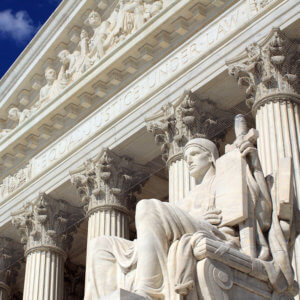 The U.S. Supreme Court heard oral arguments on Tuesday that could redefine the boundaries of criminal liability for false statements in dealings with banks or financial regulators.
The U.S. Supreme Court heard oral arguments on Tuesday that could redefine the boundaries of criminal liability for false statements in dealings with banks or financial regulators.
Former Chicago alderman Patrick Daley Thompson, a member of one of Chicago’s most prominent political dynasties, served four months in federal prison for making false statements to the Federal Deposit Insurance Corp. about bank loans.
His counsel argued that, under federal law, Thompson should not have been convicted for at least one of the statements he made to the FDIC because the statement was misleading — not literally false, as federal law would have demanded.
Prosecutors argued successfully in 2020 that Thompson took out three loans from Washington Federal Bank for Savings, a local bank in Chicago’s Bridgeport neighborhood, and that when Washington Federal Bank for Savings failed, Thompson told the FDIC that he had borrowed $110,000, the amount of the first loan, but omitted the second two loans for which he never filled out paperwork.
Chris Gair, who represented Thompson in the Supreme Court on Tuesday, argued that this statement was technically true, but misleading. He said that the statute prohibiting false statements to the FDIC does not specify that it bars both false and misleading statements, as it does elsewhere in the law. Read more
State Regulators Issue $80 Million Penalty to Block, Inc., Cash App for BSA/AML Violations
Conference of State Bank Supervisors
 In a coordinated enforcement action by 48 state financial regulators, Block, Inc. will pay an $80 million fine and undertake corrective action for violations of the Bank Secrecy Act (BSA) and anti-money laundering (AML) laws that safeguard the financial system from illicit use.
In a coordinated enforcement action by 48 state financial regulators, Block, Inc. will pay an $80 million fine and undertake corrective action for violations of the Bank Secrecy Act (BSA) and anti-money laundering (AML) laws that safeguard the financial system from illicit use.
More than 50 million consumers use Cash App, Block’s mobile payment service, to spend, send, store, and invest money.
In the multistate settlement signed this week, Block agreed to pay the assessed penalty to the state agencies, hire an independent consultant to review the comprehensiveness and effectiveness of its BSA/AML program, and submit a report to the states within nine months. Block then will have 12 months to correct any deficiencies found in the review after the report is filed.
State regulators in Arkansas, California, Massachusetts, Florida, Maine, Texas, and Washington State led the multistate enforcement effort. Block cooperated with the states in the settlement.
Under BSA/AML rules, financial services firms are required to perform due diligence on customers, including verifying customer identities, reporting suspicious activity, and applying appropriate controls for high-risk accounts. State regulators found Block was not in compliance with certain requirements, creating the potential that its services could be used to support money laundering, terrorism financing, or other illegal activities. Read more
New Section 1071 Rules Put Banks Under the Compliance Microscope
Matt Kunkel, Payments Journal
 Federal regulators have targeted unfair lending practices for more than a decade, with the fallout from the 2008 financial crisis prompting the introduction of numerous new rules designed to protect consumers from predatory lenders.
Federal regulators have targeted unfair lending practices for more than a decade, with the fallout from the 2008 financial crisis prompting the introduction of numerous new rules designed to protect consumers from predatory lenders.
Now, these regulators are shifting their focus from consumer-facing loans to small business loans—specifically, those issued to businesses with under $5 million in revenue.
Section 1071 of the Dodd-Frank Act requires lenders to document information about their lending practices to underrepresented groups, including women-owned businesses and minority-owned businesses. This data must be reported to the Consumer Financial Protection Bureau (CFPB) for analysis.
The final 1071 rule was revealed in 2023 and will be rolled out on a tiered basis. While enforcement has not begun yet, that date is approaching: for large banks, the first filing deadline with the CFPB will be on June 1, 2026, meaning they must begin collecting data and demonstrating compliance with the rule’s provisions by July 18, 2025. Small and mid-sized banks and financial institutions have a bit more time. They need to start collecting data by January 16, 2026, with a filing deadline of June 1, 2027.
While 2027 may seem far off, implementing the data collection and compliance practices required by Section 1071 can be time-consuming, especially if starting from scratch. It’s critical for financial institutions to have an implementation plan in place well before the rule officially goes into effect. Read more
Jan. 10, 2025: Industry & Regulation
- 18 Credit Union Associations Unite in Defense Against CFPB’s Harmful Overdraft Rule, Supporting Financial Well-Being for All Members
- The Bank Regulatory Items That Are Open for Public Comment
- FinCEN Seeks SCOTUS Ruling on Corporate Transparency Act Injunction
- Credit Unions Wary of Regulatory, Liquidity Pressures As 2025 Commences
18 Credit Union Associations Unite in Defense Against CFPB’s Harmful Overdraft Rule, Supporting Financial Well-Being for All Members
Tennessee Credit Union League
 Late Tuesday, 18 credit union leagues and associations filed an amicus brief in support of America’s Credit Unions’ recent federal lawsuit challenging the Consumer Financial Protection Bureau’s (CFPB) final rule that sets a fee cap on overdraft protection programs.
Late Tuesday, 18 credit union leagues and associations filed an amicus brief in support of America’s Credit Unions’ recent federal lawsuit challenging the Consumer Financial Protection Bureau’s (CFPB) final rule that sets a fee cap on overdraft protection programs.
Collectively, leagues and associations that filed the amicus brief represent 3,237 credit unions and 105 million credit union members from 29 states.
“Tennessee credit unions should be the ones to decide how to serve their members and what programs to offer, not a federal government agency,” said Fred Robinson, president and CEO of the Tennessee Credit Union League. “Tennessee credit union members are served well by their credit unions and appreciate programs, like overdraft protection, that they are offered.”
The amicus brief highlights the significance of credit unions’ unique member-owner relationship that is fundamental to their mission of serving their communities. The CFPB’s final rule focuses on calculating costs and assessing fees, failing to account for credit unions’ unique capital and operational realities. The final rule was developed with data from five financial institutions that does not represent the diversity of the financial services industry. Read more
The 18 state credit union leagues/associations represented by the amicus brief include:
California Credit Union League; Carolinas Credit Union League; Cooperative Credit Union Association; Cornerstone League; Illinois Credit Union League; Kentucky’s Credit Unions; Luminate Louisiana Credit Unions; Michigan Credit Union League; Minnesota Credit Union Network; Mississippi Credit Union Association; Nebraska Credit Union League; Nevada Credit Union League; New York Credit Union Association; Ohio Credit Union League; Tennessee Credit Union League; The League of Credit Unions & Affiliates; Utah’s Credit Unions; and The Wisconsin Credit Union League
The Bank Regulatory Items That Are Open for Public Comment
American Banker Editorial Staff
 Public comment openings are an essential part of any well-rounded legislative process, but it can be hard to keep track of all the different agencies and governance alerts that are published across the banking industry.
Public comment openings are an essential part of any well-rounded legislative process, but it can be hard to keep track of all the different agencies and governance alerts that are published across the banking industry.
Using data provided by American Banker’s regulatory data partner, RegAlytics, American Banker will provide up-to-date governance and regulatory notices from agencies including the Federal Deposit Insurance Corp., Federal Reserve, Consumer Financial Protection Bureau and more.
Each listing includes the name of the publishing entity, the category of notice, what matter is open for public comment, a summary providing further details on the topic and a link to the announcement on each agency’s website. Summaries are taken directly from the agencies. See the full description at the link under each listing. Read more
FinCEN Seeks SCOTUS Ruling on Corporate Transparency Act Injunction
Kiernan L. Ignacio, Kathleen M. Porter of Robinson & Cole LLP, National Law Review
 As reported in our prior alerts, the case of Texas Top Cop Shop, Inc., et al. v. Garland, et al., has taken business owners on a roller coaster ride over the past month.
As reported in our prior alerts, the case of Texas Top Cop Shop, Inc., et al. v. Garland, et al., has taken business owners on a roller coaster ride over the past month.
- December 3, 2024: The U.S. District Court for the Eastern District of Texas ruled in favor of the plaintiffs and granted a nationwide injunction that halted enforcement of the Corporate Transparency Act (CTA) reporting rules for all reporting companies.
- December 23, 2024: A motions panel of the Fifth Circuit Court of Appeals granted a motion of the Financial Crimes Enforcement Network (FinCEN) to lift that injunction and reinstate the CTA reporting rules with modified deadlines.
- December 26, 2024: A separate panel of the Fifth Circuit Court of Appeals (the panel slated to hear the appeal on its merits in March 2025) reversed the December 23rd ruling and once again halted immediate enforcement of the CTA reporting rules for all reporting companies.
- December 31, 2024: FinCEN sought relief from the Supreme Court of the United States (SCOTUS), seeking again to have the injunction lifted or, alternatively, have it narrowed to only apply to the plaintiffs in the Texas Top Cop Shop case. FinCEN also asked that SCOTUS consider taking the appeal away from the Fifth Circuit and decide the merits itself.
Even if SCOTUS does not decide the merits at this time, it may ultimately determine the constitutionality of the CTA. This is because, at present, there are three other pending federal cases challenging the constitutionality of the CTA. District courts in Oregon and Virginia have denied preliminary injunction motions raising constitutional claims similar to those raised in the Texas Top Shop case. Read more
Credit Unions Wary of Regulatory, Liquidity Pressures As 2025 Commences
Tyfone
 What are the primary issues that credit union CEOs are keeping a close eye on as 2025 unfolds?
What are the primary issues that credit union CEOs are keeping a close eye on as 2025 unfolds?
John Holt, CEO of $690 million-asset Nutmeg State Financial Credit Union in Rocky Hill, Connecticut, said heightened regulatory and compliance pressure is chief among them. Holt said increased focus on data security, along with greater scrutiny of fees and other sources of noninterest income, will place additional pressure on credit unions this year.
“The disproportionate regulatory burden imposed by the CFPB on credit unions, compared to larger financial institutions, may force these institutions to raise loan rates to cover the added costs of compliance,” Holt said.
Other potential impacts could include making credit less accessible for those who need it most and forcing smaller credit unions to look for merger partners.
Nutmeg State Financial and First Bristol Federal Credit Union in Hartford completed their merger in June. In fact, Holt said Nutmeg state is currently working on two other potential mergers. He also said that liquidity pressure for credit unions bears watching.
Economic trends – whether positive or negative – are likely to impact credit unions in 2025. In the event of a recession, consumers may struggle to make loan payments while unemployed, putting pressure on credit unions’ liquidity, Holt said. Read more